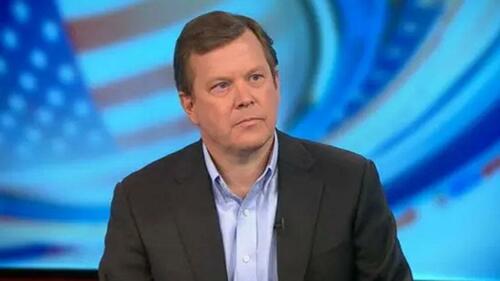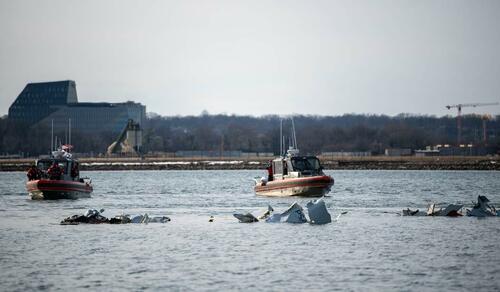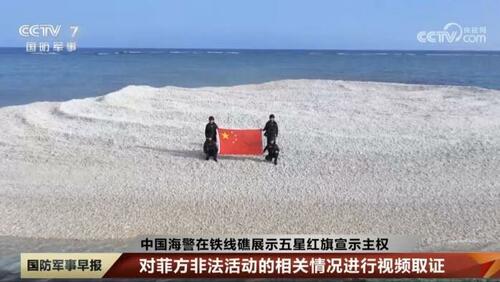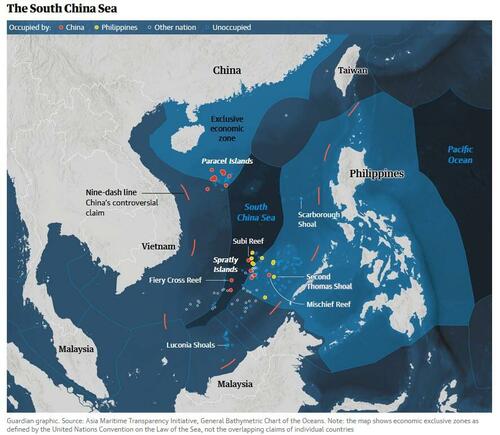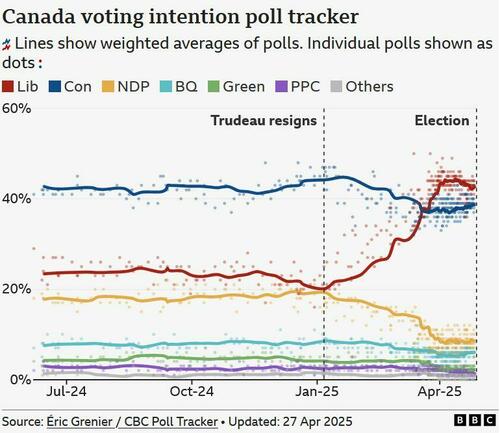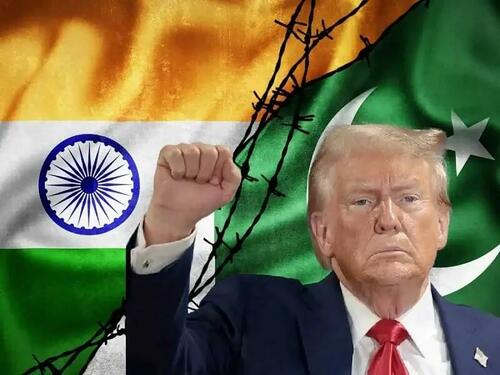In proclaiming the faith and in administering the sacraments every priest speaks on behalf of Jesus Christ, for Jesus Christ.
Distinction Matter - Subscribed Feeds
-
Site: Mises Institute
-
Site: Mises InstituteTom DiLorenzo, Tom Woods, and Robert Malone meet in Phoenix to expose how state power, psychological operations, and public health "experts" use bureaucracy as both a weapon and a weakness.
-
Site: Mises Institute62% think tariffs will be a net liability in the long run. Even more think it will be costly in the short run. They're right because tariff hikes are just tax increases on Americans.
-
Site: Mises Institute"Modern medicine looks more like a religion than a science—and its priests are bureaucrats."
-
Site: Mises Institute"In government, failure is success—and the worse you do, the more money you get."
-
Site: Mises Institute"Bureaucracies never had to prove they helped—they only had to follow the rules and demand obedience."
-
Site: Zero HedgeRat Infestation Disrupts UK Nuclear Plant ConstructionTyler Durden Mon, 04/28/2025 - 03:30
Authored by Felicity Bradstock via OilPrice.com,
-
Workers at the Hinkley Point C nuclear power plant construction site in the UK have reported a significant rat infestation, raising health and safety concerns.
-
The rat problem is causing disruption to the major energy project and prompting calls for immediate action from trade unions to address the issue.
-
Despite assurances about the safety of nuclear power plants, this incident highlights challenges and public perception issues related to nuclear facilities.
The U.K. has ambitious nuclear power plans and is developing several small- and large-scale projects. While opposition, high costs, and other factors have slowed development in the past, EDF has been facing another problem at its Hinkley Point C construction – a rat infestation.
In early April, the Unite and GMB trade unions for workers at Hinkley Point C in Somerset, in the south of England, informed the developer, French energy giant EDF, that the facility was overrun with rats. The unions said that immediate action was needed as the rodents were “everywhere” and the rapidly expanding rat population prompted health and safety concerns for the workforce.
One source reported, “They’re all over. You see them just sat there, looking at you. It is worse near the canteens, where I guess it started. But they are everywhere now.” Another source said, “The more men working on the site, the more rubbish on the site – and the canteens are not clean either. It has just become worse over time.”
The development of Hinkley Point C is expected to support the creation of 15,000 jobs. Once complete, the plant is expected to power around 6 million U.K. homes and contribute 7 percent of the country’s electricity needs. It is planned to launch in the early 2030s, following several years of delays and spiralling costs. However, many believe this is an unrealistic aim. In recent months, workers have complained about poor working conditions and low pay, potentially because of EDF’s financial pressures. Hundreds of project staff also went on strike in November over the inadequate security access to the site.
A Hinkley Point C spokesperson said, “As is common across all large construction sites, there will be occasions when the presence of vermin is noted. A specialist company has carried out a survey and measures are in place to address the issue. We are committed to working alongside our trades union partners to provide the best environment for all of our workers.”
Even though the U.S. government has previously assured the public that the TV show The Simpsons was wrong about potential rat infestations, this is not the first time the problem has been seen in recent years. The U.S. Department of Energy published an article in 2018 aiming to debunk several nuclear myths. It stated:
“Nuclear power plants are well-maintained.
The Springfield plant is notorious on the show for its safety violations. They range from rat infestations and cracked cooling towers (held together with chewing gum) to leaky pipes that spill out radioactive waste.
This simply does not happen. The nuclear industry is one of the safest to work in and to live near.”
However, rat problems have been seen in the past, such as during the Fukushima 2013 power cut. In March 2013, the Tokyo Electric Power Co (Tepco) suspected that rats may have caused a short circuit in a switchboard, triggering the power cut. Tepco announced that it had found burn marks on a makeshift power switchboard and a 15 cm dead rodent nearby. The outage shut down cooling systems for four spent fuel ponds at reactors 1, 3 and 4, however cooling to the reactors was not affected. Following the incident, engineers spent around 30 hours repairing the damage. This came just two years after a giant earthquake-triggered tsunami caused meltdowns at the plant, which was in the decommissioning stage during the rodent incident.
Despite the rodent infestation in the construction phase of Hinkley Point C and during the decommissioning period of Fukushima, rats are, indeed, not a common sight in nuclear power plants thanks to the enforcement of strict safety regulations. For decades the public perception of nuclear power has been negative, due to three separate nuclear disasters – Chernobyl, Three Mile Island, and Fukushima. However, nuclear experts have repeatedly tried to reassure the public that nuclear power is one of the safest forms of energy.
The International Atomic Energy Agency says nuclear power plants are among “the safest and most secure facilities in the world”, as they are subject to strict international safety standards. The World Nuclear Organisation reminds us, “In the 60-year history of civil nuclear power generation, with over 18,500 cumulative reactor-years across 36 countries, there have been only three significant accidents at nuclear power plants.” While these incidents stuck in the minds of people worldwide, this ratio is extremely low when compared to other forms of energy.
Rigorous international standards and regulations, as well as significant improvements to nuclear technology, have helped make nuclear power one of the safest forms of clean energy production. As the public perception of nuclear energy begins to shift to more positive, and countries worldwide look for ways to support a transition away from fossil fuels to green alternatives, we can expect to see a massive nuclear renaissance in the coming years.
-
-
Site: Mises InstituteProfits aren’t immoral—they’re necessary. Just as organisms need a net energy surplus to live, societies need profits to sustain themselves.
-
Site: RT - News
A British watchdog has criticized the biotech firm over recruitment practices involving children in coronavirus booster studies
US ’big pharma’ company Moderna could be suspended or expelled from a UK trade body after breaches of industry rules, including offering children cash and teddy bears to take part in Covid vaccine trials, The Telegraph has reported.
Moderna, which joined the Association of the British Pharmaceutical Industry (ABPI) in 2023, now faces an audit that could result in its suspension or expulsion. A new ruling is expected to be published in the coming days, according to The Telegraph. If sanctioned, it would become the tenth firm to face suspension from the ABPI in the past 40 years, the newspaper wrote.
The UK’s drug watchdog, the Prescription Medicines Code of Practice Authority (PMCPA), said Moderna’s lack of transparency was "unacceptable" and damaged the industry’s reputation.
In October 2024, Moderna was fined £14,000 ($17,850) after a WhatsApp message offered £1,500 ($1,872) to minors to join the NextCOVE Covid booster trial. Although the company later reduced the payment to £185 ($231), at least one site continued promoting the original offer. The PMCPA said the payment was “much higher than would be considered a reasonable reimbursement” and ruled that it discredited the pharmaceutical industry.
Read more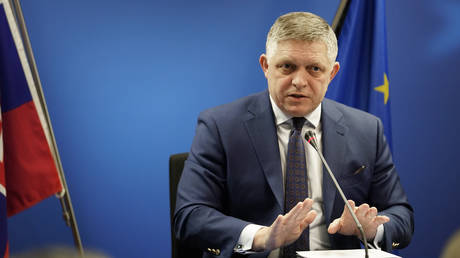 EU state’s PM issues Covid vaccine warning
EU state’s PM issues Covid vaccine warning
In a separate case, Moderna was fined nearly £44,000 ($56,000) after Britain’s pharmaceutical watchdog found it had damaged the industry’s reputation. In 2023, Bradford Teaching Hospitals NHS Foundation Trust published adverts aimed at children aged 12 and over, offering “a lovely certificate and a ‘be part of the research’ teddy bear.” Two online articles also promoted recruitment.
A senior Moderna employee co-authored promotional articles, including one with former vaccines minister Nadhim Zahawi, without disclosing his affiliation, the Telegraph reported. The employee also sent promotional tweets without revealing his role.
The PMCPA said Moderna “misled regulators” about when it learned of the breaches. While the company claimed it acted promptly after being informed in January 2024, evidence showed executives had been alerted by UsForThem in August 2023.
The findings showed “how readily [Moderna] put profit ahead of the health and safety of children” and “laid bare just how little regard it has had for the regulatory system that was supposed to keep it honest,” Molly Kingsley, founder of UsForThem, told the newspaper.
COVID-19 vaccines, including Moderna’s Spikevax, may lead to side effects in minors, such as pain at the injection site, fatigue, headache, fever, and, in rare cases, myocarditis or pericarditis, according to health authorities.
-
Site: RT - News
Suspect Kai-Ji Adam Lo has been charged with murder after the deadly vehicle attack at the Lapu Lapu Day celebration
The death toll from the car-ramming attack at a Filipino festival in the Canadian city of Vancouver on Saturday has risen to 11, police have said.
The suspect, Kai-Ji Adam Lo, 30, has been charged with eight counts of second-degree murder, with additional charges expected as the investigation continues.
The incident occurred around 8:14pm near East 41st Avenue and Fraser Street, as the Lapu Lapu festival was concluding and barriers were being removed.
Witnesses said a black SUV accelerated into the crowd, causing mass casualties. Bystanders detained the suspect before police arrived.
The victims ranged in age from five to 65 years old, according to interim police chief Howard Rai. Thirty-two patients were treated at hospitals across the Lower Mainland, with 17 still hospitalized, some critically, the provincial Ministry of Health confirmed.
Read more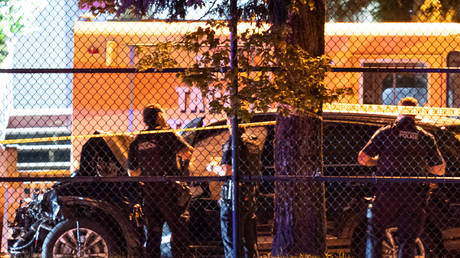 Car rams into crowd in Canada (VIDEOS)
Car rams into crowd in Canada (VIDEOS)
Lo, a Vancouver resident, reportedly has a documented history of mental health issues. According to the Vancouver Sun, his family contacted a hospital psychiatric ward seeking help for him just hours before the attack. He was believed to be suffering from delusions and paranoia. Police stated that the incident is not being investigated as terrorism-related.
Last year, Lo’s brother, Alexander, was murdered in Vancouver. Following his brother’s death, Lo wrote about his grief and his mother’s suicide attempt on a fundraising page.
The suspect appeared in court on Sunday, did not request bail, and remains in custody. His next court appearance is scheduled for May 26.
Police have established a 24-hour assistance center at Douglas Park Community Centre for families of victims.
The Lapu Lapu Day festival honors a Filipino hero who resisted Spanish colonization. Organizers said the Filipino community would show “true resilience” following the tragedy.
-
Site: The Unz ReviewNews this week that Elon Musk will soon be departing his “Department of Government Efficiency” (DOGE) is a grim reminder of what happens when you challenge big spending DC. Unfortunately, the lesson once again is that when you challenge the empire, the empire eventually strikes back. President Trump rode into office with the help of...
-
Site: The Unz ReviewLast month the Trump Administration launched an unprecedented assault against academic and intellectual freedom in America, targeting many of our most elite institutions of higher education. As an example of this, enormous pressure was exerted against Columbia University in New York City by withdrawing $400 million in annual federal funding and demanding its full cooperation...
-
Site: The Unz ReviewAll of Kellogg’s underlying assumptions lacked any basis in reality. Yet Trump seemingly took them on trust. Political warfare in Washington is endemic. But the body count at the Pentagon has started to rise precipitously. Three of Secretary of Defence Hegseth’s top advisors were placed on leave, and then fired. The war continues, with the...
-
Site: AntiWar.comUkrainians may remember two days that just passed as two of the worst days in their history. It has been evident since long before Donald Trump and JD Vance were elected that the war in Ukraine would one day end with a diplomatic settlement that was based on, and looked much like, the diplomatic settlement … Continue reading "Ukraine’s Worst Day: Zelensky Rejects Trump’s Peace Plan"
-
Site: The Unz ReviewThe question is simple: The white race, yes or no? By the end of this century, whites will be on track to becoming minorities in almost all our historic homelands, even within Europe. The majority of births in the United States are already to non-whites. This shift will have major political, economic, religious, and cultural...
-
Site: The Unz ReviewThe nations of Scandinavia, until recently, were idealised as modern, progressive places to live. Their highly educated populace embraced liberal values and eschewed ethnocentric patriotism to open their doors to immigrants, particularly Muslims. They had nothing but token armies, which pursued diversity and equality policies. Pacifism no more: Sweden and Finland, after decades of neutrality,...
-
Site: AntiWar.comHere is yet another example of stunningly craven journalism from the Guardian, entirely illustrative of what is going on across the British establishment media in its coverage of Israeli war crimes in Gaza for the past 18 months. We are now a month on from Israel executing 15 paramedics and hiding their bodies in a … Continue reading "How Is the Media Still Getting the Gaza Murdered Paramedics Story So Wrong?"
-
Site: The Unz ReviewThe nerds who brought us the digital revolution did so without any thought to the obvious consequences. Americans addicted to scrolling their cell phones and enjoying social media are suffering from the numerous threats that the digital revolution brings to them. Not just government spying on them and, if government wishes, setting them up for...
-
Site: RT - News
The US president believes Kiev is closer to reaching a deal with Moscow than before
US President Donald Trump has said Ukraine’s Vladimir Zelensky was “calmer” during their meeting in the Vatican at the weekend and seemed more open to making a deal with Moscow than during their infamous encounter in the Oval Office.
Speaking to reporters before boarding Air Force One on Sunday, Trump said the tone of his latest discussion with Zelensky was markedly different from their “little dispute” in February, which saw the Ukrainian delegation kicked out of the White House.
“I see him as calmer. I think he understands the picture. And I think he wants to make a deal. I don’t know if he wanted to make a deal [before]. I think he wants to make a deal,” Trump said.
Earlier this week, Trump told Time magazine that “Crimea will stay with Russia” under any peace agreement, noting that even Zelensky “understands” the reality, despite public declarations to the contrary. Asked whether he believed Zelensky was now prepared to “give up” the peninsula, Trump responded: “Oh, I think so, yeah.”
Read more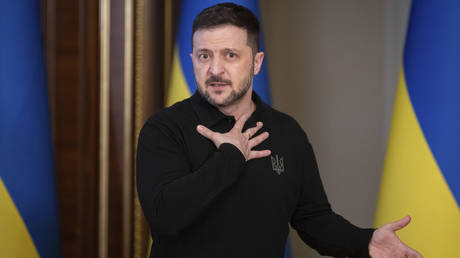 Zelensky demands ‘at least’ Israel-style support from US
Zelensky demands ‘at least’ Israel-style support from US
Zelensky has repeatedly and publicly insisted that Kiev would never formally recognize Crimea as Russian territory – a position Trump has previously criticized as “very harmful to the peace negotiations.”
Despite portraying Zelensky as someone who wants to do “something good for the country,” Trump revealed that the Ukrainian leader again asked Washington for more military support.
“He told me that he needs more weapons, but he has been saying that for three years,” Trump stated. The US president noted that Kiev was in a “very tough situation,” fighting “a much bigger force” — and emphasized that “it helped them when we gave them $350 billion worth of weapons or cash.”
Read more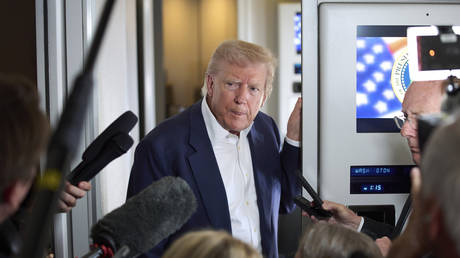 Zelensky contradicts Trump on deal with Russia
Zelensky contradicts Trump on deal with Russia
“He needs more weapons, and we are gonna see what happens with respect to Russia,” Trump added, noting that he was “disappointed” with Moscow’s renewed strikes in Ukraine.
Following a brief lull in fighting during the Easter ceasefire announced by President Vladimir Putin last weekend, the Russian military carried out multiple long-range strikes against Ukrainian military and industrial targets over the past week. Moscow has maintained that it targets only military installations and facilities used by Kiev’s forces, rejecting accusations of deliberately striking civilian sites.
Moscow has also reiterated its readiness for discussions with Kiev without preconditions. Kremlin spokesman Dmitry Peskov confirmed that the issue was raised during a meeting between President Putin and Trump’s special envoy, Steve Witkoff, on Friday.
READ MORE: Moscow ready to seek ‘balance of interests’ with Ukraine and US – Lavrov
Russian officials have emphasized that any viable long-term settlement must reflect the territorial realities on the ground and address the root causes of the conflict. According to multiple reports, Washington’s proposal seeks to freeze the conflict along the current front lines and recognize Crimea as part of Russia. However, Russian Foreign Minister Sergey Lavrov said that – unlike Zelensky – Moscow does not intend to discuss confidential details of talks with the US until the process is completed.
-
Site: Euthanasia Prevention CoalitionAlex Schadenberg
Executive Director, Euthanasia Prevention Coalition
An article published in the Toronto Sun on April 25 and written by Brian Passifiume concerns David Baltzer, a Canadian veteran who was offered euthanasia instead of medical treatment in December 2019.
Baltzer, a two tour Afghanistan combat veteran with the Princess Patricia’s Canadian Light Infantry (PPCLI,) told the Toronto Sun that:
he was offered MAID in Dec. 23, 2019 — possibly making him among the first Canadian soldiers offered therapeutic suicide by the federal government.
“It made me wonder, were they really there to help us, or slowly groom us to say ‘here’s a solution, just kill yourself,”The Toronto Sun reported Baltzer as saying:
“I was in my lowest down point, it was just before Christmas,” he told the Sun.
“He says to me, ‘I would like to make a suggestion for you. Keep an open mind, think about it, you’ve tried all this and nothing seems to be working, but have you thought about medical-assisted suicide?'”Baltzer said that the suggestion left him reeling. Passifiume reported that Baltzer was offered treatment for PTSD (post traumatic stress disorder) after returning from Afghanistan. The treatment was unsuccessful. Baltzer then turned to alcohol and substance abuse to deal with his trauma. Passifiume reported that:The story first came out when when he was interviewed by CAF veteran Mark Meincke, whose trauma-recovery podcast Operation Tango Romeo broke the story.
Meincke said Baltzer’s story shoots down VAC’s assertions blaming one caseworker for offering MAID to veterans, and suggests the problem is far more serious than some rogue public servant.
“It had to have been policy. because it’s just too many people in too many provinces,” Meincke told the Sun.Meincke and Baltzer are calling for a complete reform of the Veterans Affairs.
Meincke said that he knows at least 5 veterans who were offered MAiD by veterans affairs.More articles on this topic: -
Site: Euthanasia Prevention CoalitionThis article was published by Kelsi Sheren on her substack on April 25, 2025.Big shocker Veteran’s Affairs is at it again, the Canadian government, since 2022, is failing our veterans in the most disgusting and disgraceful way possible: by offering them death care instead of healthcare! But Kelsi?! didn’t they say they aren’t doing that anymore?? Yes they sure did, once again Liberal lies. Are we surprised honestly?
In a chilling repeat of a disturbing trend, another Canadian combat veteran has been offered medically assisted suicide (MAiD) instead of genuine support and treatment. My question is when did ending lives become an acceptable, even routine, solution for our veterans suffering from trauma, PTSD, or any other physical and mental health challenges? When did offering death become an easier alternative than providing the comprehensive care our veterans desperately deserve, care we know exists but are unwilling to use or fund.
Veterans, in my opinion deserve compassion, proper treatment, respect, dignity, and unwavering support, but thats just me I guess. We should NEVER be offering an off-ramp to the grave. This continues to be a disturbing, even horrifying trend that not even the Veteran Affairs Minister is aware of. To think that some government case managers, those specifically entrusted with the sacred duty of caring for our veterans, would even contemplate suicide as an option rather than investing the necessary time, resources, and genuine effort into authentic healing and recovery is insane. Our veterans fought and continue to fight for life and liberty and now for their own country to later suggest ending their life. This is one of the dangers on continuing to talk about MAiD as some “life saving amazing program!”
This story, not one we haven’t heard before but were promised would “never happen again” to a sinister and growing pattern, the Liberal government is a profound failure on several fronts. Failing in its moral, ethical, and basic human obligations to protect and care for those who willingly put their lives on the line for our freedoms. I do love how they continue to want to send us to other countries to fight, while pulling this bullshit and asking.. why are retention rates so low?! How could that be?!
What they should be asking themselves is how can we possibly trust a system that suggests death as a viable, acceptable solution? The very thought undermines the trust veterans and their families should rightly place in their government and healthcare system.
So, what can we do to rectify this continued failure? Fire everyone? Restart?
First, a good place to start would be to stop selling veteran’s out to Manulife Insurance and ACTUALLY support them! Next, there must be absolute, unequivocal accountability at every level. (Which we know won’t happen, but hey I’m just a combat veteran who is preaching accountability, something this government knows absolutely nothing about”
Case managers should never, under any circumstances, be authorized or empowered to suggest medical suicide. These case managers need to be made examples of because in 2022 when they were caught the first time, not a damn thing was done.
Counselling suicide should be crystal clear, explicitly stated in operational guidelines, and communicated with zero ambiguity. The word is NO! WE NEVER SUGGEST SOMEONE DIES instead of helping them. Next I would implement mandatory, rigorous oversight and thorough mental health training programs specifically designed around trauma-informed care, ensuring that case managers fully understand their critical role in protecting, preserving, and supporting veterans' lives.
Additionally, complete transparency in reporting any incidents or breaches is non-negotiable, alongside swift and public accountability measures, and what I really mean is heads on spikes. There must be an unequivocal, zero tolerance policy for anyone who recommends death over dedicated, thorough, and compassionate care and support.
Lastly, why is the VA not asking Veterans what they really want to see change? Why is this only done behind closed doors, where only government officials whom not a single one is a veteran by the way are speaking for us. We need to be actively involving veterans themselves in shaping our policies and procedures that directly impact their care, we need to ensure our voices and experiences are genuinely heard and respected.
This is not simply about revising policy, this is fundamentally about basic human decency, dignity, and respect.
It is far beyond time for Canada to truly step up, reform its priorities, and genuinely care for its veterans. Anything less than complete dedication to safeguarding their lives, health, and well-being is a betrayal of every sacrifice our veterans have ever made.
And trust me, the majority of Veterans in this country including myself are nothing but ashamed of this government, how they treat us and how they have hung every single one of us out to dry.
At this point, I’m shocked they don’t just mail us the noose’s themselves.Some previous articles by Kelsi Sheren:- I'm done staying quiet (Link).
- Offered assisted death instead of surgery (Link)
- Dying with Deception. Exposing Dying With Dignity Canada's Dangerous Lies and teh United Nations call for Truth (Link).
- Debunking the ethical argument for assisted dying for minors (Link).
- Franchising Death (Link).
- Let's call MAiD what it is (Homicide) (Link)
- The Death Cult of the Euthanasia Lobby (Link).
-
Site: Edward FeserRecently, my article “A Catholic Defense of Enforcing Immigration Laws” appeared at Public Discourse. Both Therese Cory and Terence Sweeney have raised criticisms of the article. In a new article at Public Discourse, I reply to them.
-
Site: Zero HedgeIsrael Extends Compulsory Service As Manpower Crisis Plagues ArmyTyler Durden Sun, 04/27/2025 - 22:10
The Israeli army has announced that it will extend mandatory service by four months due to a growing manpower crisis, coinciding with an intensification of battles in Gaza and the resurgence of deadly resistance operations against invading troops.
The additional four months will be classified as reserve duty, allowing soldiers to complete a total of three years of military service. The military will also cancel pre-release leave for soldiers. Troops will have to serve a full three years before being discharged.
 Image via Anadolu Agency
Image via Anadolu Agency
This decision follows months of intense fighting and rising casualties, which have strained troop levels.
The extra four months will provide benefits for the soldiers, given that reserve duty is usually compensated by the Israeli government. The army states that its decision is temporary and aims to help alleviate the current troop shortages.
"At the moment, we are short 10,000 troops, 7,000 of them in combat units," the army said. Israel announced on Saturday the death of Staff Sergeant Neta Yitzhak Kahana, an undercover operative with the Southern Border Police, who was killed during clashes with militants in Gaza.
His death marked the second Israeli soldier to be killed over the weekend. Both were killed in Gaza City’s Shujaiya neighborhood.
Israel has said that it will launch a major offensive across Gaza if no progress is made in truce negotiations. According to Tel Aviv, current operations in Gaza – which have seen the army seize at least 50 percent of the strip’s territory – aim to pressure Hamas in talks, not bring about a complete defeat of the resistance group.
An expanded assault on Gaza would include a massive call-up of reservists and operations in new areas of the strip, the army has said.
Last month, Israeli media reported that the army is facing a crisis in its reserves as a growing number of soldiers have indicated a lack of motivation and an unwillingness to serve. A senior commander in the reserves told Haaretz that there are numerous cases of reservist soldiers refusing to report for duty.
According to estimates, the response rate for the upcoming reservist call-up is expected to be no more than 50 percent. This would mark a 50 percent drop since the start of the war in 2023.
Meetings of the Israeli Security Cabinet revealed “major disagreements” between the political and the military ranks regarding the policies of Prime Minister Benjamin Netanyahu’s government on the genocidal war against the Gaza Strip.
— Middle East Monitor (@MiddleEastMnt) April 27, 2025
Read: https://t.co/RSWsBIiV95 pic.twitter.com/HbtZuXxnVHThe manpower crisis Israel is facing coincides with growing tension between Israel’s political and security establishments. Former Shin Bet chief Ami Ayalon called for civil disobedience against Prime Minister Benjamin Netanyahu following his dismissal of Shin Bet chief Ronen Bar. This came during a protest in Tel Aviv on Saturday.
Israeli protesters have also taken to the streets to demand an immediate exchange agreement in Gaza, where relentless airstrikes are endangering the lives of captives still held by the resistance.
-
Site: Zero HedgeSchweizer: Chinese Chemists Working With Mexican Cartels Creating Fentanyl To Kill AmericansTyler Durden Sun, 04/27/2025 - 21:35
New York Times bestselling author Peter Schweizer is once again speaking out against China's sinister role in fueling America's deadly fentanyl crisis, as President Donald Trump seeks to punish the communist regime for its involvement.
"There are 2000 Chinese nationals in northern Mexico working for the Sinaloa drug cartel," Schweizer, citing DEA data, told The Cats and Cosby Show on Friday. "They’re basically chemists."
"They take the precursor chemicals that, of course, arrive from China and they turn it into the deadly cocktail, which is what people are dying from. They produce pills. People who die of fentanyl overdose, they think they’re talking a Vicodin or Adderall,” he added.
Although fentanyl-related deaths in the U.S. are declining, the crisis remains a grim reality. According to the CDC, a staggering 76,226 Americans died from overdoses involving synthetic opioids—primarily fentanyl—in 2022, delivering a gut-punch to communities nationwide. Provisional data from 2023 shows a slight decline, with 74,702 deaths linked to these powerful substances. Even more striking, the latest CDC and DEA figures estimate approximately 55,126 deaths from synthetic opioids in the 12 months ending September 2024—a significant and hopeful drop, but still a sobering reminder of fentanyl’s ongoing toll.
President Donald Trump has repeatedly pointed the finger at China as a key culprit in America’s fentanyl crisis, accusing Beijing of fueling the epidemic by allowing precursor chemicals to flow to Mexican cartels. In a February 2025 White House statement, Trump accused China of subsidizing companies to export fentanyl-related chemicals, describing the crisis as a “national emergency” killing “approximately two hundred Americans per day.” He’s tied this to his trade agenda, imposing a 20% tariff on Chinese imports—on top of a 10% base tariff—explicitly to pressure Beijing on fentanyl. On April 24, 2025, Trump posted on Truth Social, “Fentanyl continues to pour into our Country from China, through Mexico and Canada, killing hundreds of thousands of our people, and it better stop, NOW!”
China has consistently denied accusations that it is a primary driver of the U.S. fentanyl crisis. Chinese officials argue that the crisis is a U.S. domestic issue rooted in demand, not their supply of precursor chemicals. In March 2025, Foreign Ministry spokesperson Lin Jian stated the root cause of the fentanyl issue lies in the United States itself. Lin also criticized the U.S. for imposing tariffs under the pretext of the fentanyl issue, calling such actions unjustified and counterproductive.
-
Site: RT - News
The French president was sidelined during a meeting in Saint Peter’s Basilica, according to video footage
US President Donald Trump allegedly told his French counterpart, Emmanuel Macron, to step aside before having a one-on-one conversation with Ukraine’s Vladimir Zelensky, according to a professional lip reader cited by British media.
The impromptu meeting took place on the sidelines of Pope Francis’ funeral on Saturday. Footage from the Vatican showed Zelensky walking toward the seating area with Trump, glancing back several times, seemingly expecting the French leader to join. Three chairs were set up, suggesting plans for a three-way discussion.
As the French president approached, Zelensky greeted him warmly with a smile and a hand gesture. However, just moments later, a staff member discreetly removed the third chair. Footage showed Trump gesturing firmly, signaling that the conversation would proceed strictly between him and Zelensky, while Macron eventually stepped back.
Speaking to The Sun on Sunday, Nicola Hickling, a British entrepreneur specializing in lipreading and expert witness reports, described the exchange.
Read more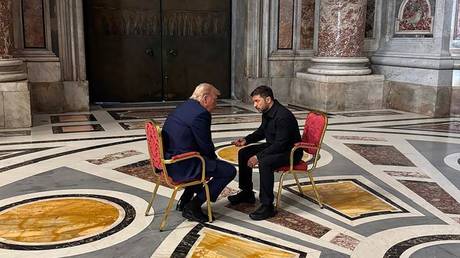 Macron snubbed during Trump–Zelensky meeting in Vatican
Macron snubbed during Trump–Zelensky meeting in Vatican
“Donald reaches his hands out to both of them and brings them towards him,” she said. Trump then reportedly told Macron: “You are not in the right here, I need you to do me a favor, you should not be here.”
According to Hickling, Zelensky then “nods in agreement and the vicar who is in front of the camera turns his head to the side looking worried at what he has heard between them.”
French diplomatic sources have played down the frosty exchange, insisting that Macron had no intention of joining the discussion. “People have got their brains in a twist over the third chair. (It) was supposed to be for the interpreter, but in the end it turned into a tete-a-tete,” an unnamed source told The Telegraph.
The brief meeting in Vatican marked the first face-to-face encounter between Trump and Zelensky since their clash at the White House in February. Their discussion took place as the US president has been pressing Kiev to accept what the media described as his “final offer” to end hostilities. According to reports, Washington has proposed freezing the conflict along the current front lines and recognizing Crimea as part of Russia — something Zelensky has repeatedly rejected.
Read more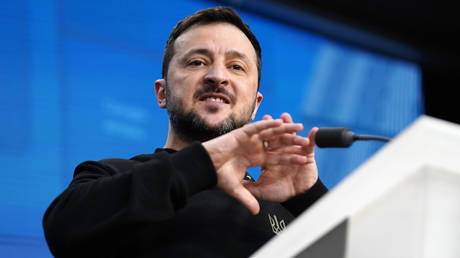 Russia wants immediate peace talks. Zelensky wants perpetual war
Russia wants immediate peace talks. Zelensky wants perpetual war
While Trump is eager to secure a ceasefire as soon as possible in order to deliver on his campaign promise, Macron has consistently insisted that any peace deal must guarantee Ukraine’s “sovereignty and territorial integrity,” contributing to rising tensions between Washington and Paris.
Meanwhile, Moscow has once again reiterated its readiness for discussions with Kiev without preconditions. Kremlin spokesman Dmitry Peskov confirmed the topic was brought up by Russian President Vladimir Putin during a meeting with Trump’s special envoy, Steve Witkoff, on Friday.
-
Site: Zero HedgeUSDA Withdraws Proposed Rule To Limit Salmonella In Raw PoultryTyler Durden Sun, 04/27/2025 - 21:00
Authored by Rudy Blalock via The Epoch Times (emphasis ours),
The U.S. Department of Agriculture announced on Thursday that it is withdrawing a proposed rule that would have required poultry companies to limit the presence of salmonella bacteria in their products, ending an effort by the past Biden administration to reduce foodborne illnesses linked to contaminated meat.
 Workers process chickens at a poultry plant in Fremont, Neb., on Dec. 12, 2019. Nati Harnik/AP Photo
Workers process chickens at a poultry plant in Fremont, Neb., on Dec. 12, 2019. Nati Harnik/AP Photo
The USDA’s Food Safety and Inspection Service (FSIS) said the decision follows the review of more than 7,000 public comments submitted in response to the proposed rule, which was published in August 2024.
The department stated it will “evaluate whether it should update” current salmonella regulations, according to a Thursday notice from FSIS, which is pending publication in the Federal Register.
The withdrawn rule would have required poultry companies to keep salmonella bacteria below a specific threshold and test for six strains most associated with it, with three found in turkey and three in chicken. Any products exceeding the standard or containing any of those strains would have been forbidden from sale and subject to recall.
The proposal was intended to reduce an estimated 125,000 salmonella infections from chicken and 43,000 from turkey each year, according to USDA data. Salmonella is responsible for approximately 1.35 million illnesses and 420 deaths annually in the United States, most of which are linked to food, according to the Centers for Disease Control and Prevention.
FSIS explained that the proposed framework targeted raw chicken carcasses, chicken parts, comminuted chicken, and comminuted turkey products contaminated with certain salmonella levels and serotypes, which would have been classified as adulterated under the Poultry Products Inspection Act, according to the agency’s April 24 notice. The agency also proposed stricter monitoring, sampling, and recordkeeping requirements for poultry processors, according to the same notice.
The agency said it received 7,089 comments on the proposal, including feedback from industry trade associations, small and large poultry processors, consumer advocacy groups, academics, and state officials.
Decision to Withdraw
Key issues raised included questions about FSIS’s legal authority, the scientific basis for the proposed standards, economic impacts, and the potential burden on small producers, according to the FSIS notice.
“While FSIS continues to support the goal of reducing Salmonella illnesses associated with poultry products, the Agency believes that the comments have raised several important issues that warrant further consideration,” FSIS stated in its withdrawal notice.
The decision to withdraw the rule was welcomed by the National Chicken Council, an industry trade group. “We remain committed to further reducing Salmonella and fully support food safety regulations and policies that are based on sound science, robust data, and are demonstrated to meaningfully impact public health,” said Ashley Peterson, the council’s senior vice president of scientific and regulatory affairs, according to the group’s statement on Thursday.
Peterson criticized the proposed framework as “legally unsound,” based on “misinterpretations of the science,” and likely to have “no meaningful impact on public health.”
She added that it would have led to “an extraordinary amount of food waste” and higher costs for producers and consumers, according to the National Chicken Council.
“We appreciate today’s announcement by FSIS and share their goal of protecting public health,” Peterson said, adding that the council looks forward to working with the agency on future policy.
Sandra Eskin, a former USDA official who helped draft the plan, said the withdrawal “sends the clear message that the Make America Healthy Again initiative does not care about the thousands of people who get sick from preventable foodborne salmonella infections linked to poultry,” according to the Associated Press.
Sarah Sorscher of the Center for Science in the Public Interest compared the proposed rule to the 1994 ban on certain E. coli strains in ground beef, calling it a missed opportunity for a significant food safety victory. “Make no mistake: Shipping more salmonella to restaurants and grocery stores is certain to make Americans sicker,” Sorscher said, according to the Associated Press.
Earlier this month, the USDA delayed enforcement of a separate rule regulating salmonella in breaded and stuffed raw chicken products by six months, pushing the start date from May 1 to Nov. 3. Such products have been linked to at least 14 salmonella outbreaks and over 200 illnesses since 1998, according to the CDC.
From NTD News
-
Site: Zero HedgeTrump Floats Plan To Slash Or Eliminate Income Taxes For Millions Using "BONANZA" Tariff CashTyler Durden Sun, 04/27/2025 - 20:25
President Donald Trump doubled down Sunday on his plan to use tariff revenue to slash - and possibly eliminate - income taxes for millions of Americans.
 Photo: Fox News
Photo: Fox News
The president took to Truth Social to tout his vision, claiming that his sweeping tariffs could lead to big tax breaks for workers making under $200,000 a year.
“When Tariffs cut in, many people’s Income Taxes will be substantially reduced, maybe even completely eliminated. Focus will be on people making less than $200,000 a year,” Trump wrote.
The bold pledge comes as public anxiety grows over the economic fallout from Trump’s aggressive trade policies, which have rattled global markets and fueled fears of higher prices at home.
In the weeks since Trump slapped so-called reciprocal tariffs on dozens of countries - including a staggering 145% levy on Chinese goods, economists have sounded the alarm that the tariffs could backfire, hurting American consumers more than foreign rivals.
That said - not everyone's excited after Trump told TIME Magazine in the April 25 edition that he “love[s] the concept” of raising taxes on millionaires as a means of paying for an extension of the 2017 tax cuts.
“I certainly don’t mind having a tax increase,” Trump told TIME.
“I would be honored to pay more, but I don’t want to be in a position where we lose an election because I was generous, but me, as a rich person, would not mind paying and you know, we’re talking about very little.”
He said it would involve raising taxes on the wealthy to “take care of [the] middle class.”
“But I don’t want it to be used against me politically, because I’ve seen people lose elections for less, especially with the fake news.”
Former White House strategist Steve Bannon told News Nation’s “CUOMO” on Friday that he supported the idea.
“This is being fought behind closed doors right now, and I’m telling you, with the massive tax cut, in addition, he’s going to give the working class and the middle class, the math only works out if you actually increase taxes on the wealthy,” Bannon said.
The former White House strategist said it could help Trump politically if he decided to run again in 2028, despite the Constitution preventing a third term in the Oval Office.
However, on April 23, the day after he sat down with TIME, Trump told reporters at the White House that raising taxes on the wealthy could be “very disruptive” and could lead to a loss of money for the United States.
House Speaker Mike Johnson dismissed the idea in an interview with Fox News.
“I’m not in favor of raising the tax rates because our party is the party that stands against that,” Johnson said on April 23.
He acknowledged that the proposal had been discussed as one of many possible ways to permanently implement personal income tax cuts in the Republicans’ final funding package.
“There were lots of ideas thrown out on the table along this process over the last year, but I would just say for everybody, just wait and see,” Johnson said.
A CBS News poll released Sunday found 69% of Americans believe the Trump administration isn't focused enough on lowering prices. Approval of Trump’s handling of the economy dropped to 42%, down from 51% in early March, Bloomberg reports.
Still, Trump’s team insists their strategy will pay off - eventually.
Treasury Secretary Scott Bessent, appearing on ABC’s “This Week,” defended the president’s approach, saying consumers are still spending and talks are underway with 17 key trading partners to hammer out bilateral deals.
“We have a process in place, over the next 90 days, to negotiate with them,” Bessent said. “Some of those are moving along very well, especially with the Asian countries.”
Bessent also insisted China would have no choice but to return to the negotiating table under pressure from Trump’s new tariff wall.
“Their business model is predicated on selling cheap, subsidized goods to the US,” Bessent said. “And if there’s a sudden stop in that, they will have a sudden stop in the economy, so they will negotiate.”
Treasury Sec. Scott Bessent on China: “Their business model is predicated on selling cheap, subsidized goods to the U.S., and if there is a sudden stop in that, they will have a sudden stop in the economy. So they will negotiate.” https://t.co/DDuPIh4dI1 pic.twitter.com/VZ8WvUno91
— This Week (@ThisWeekABC) April 27, 2025Bessent also explained America's "barbell" economy - in which there is a "financial system and tech sector that is the envy of the world" on one hand, and "a natural resource-economy led by energy" on the other end.
The U.S. has a barbell economy.
— Treasury Secretary Scott Bessent (@SecScottBessent) April 27, 2025
On one end, we have a financial system and tech sector that is the envy of the world.
On the other end, we have a natural resource-economy led by energy.
In between is where working-class Americans have lost out—and we want to fix that. pic.twitter.com/ysVxibNIQ7Trump has claimed that talks with China are ongoing - a claim Beijing has flatly denied. Bessent admitted he didn’t know if Trump and Chinese President Xi Jinping had spoken directly, noting that Chinese officials he saw during a global finance summit last week stuck to safer topics like “financial stability” and “early warnings.”
Despite the rocky start, Bessent said he’s optimistic that a path forward could emerge, starting with a “de-escalation” and leading to an “agreement in principle” - even if a full trade deal takes longer.
Meanwhile, Trump is eyeing sweeping tax changes at home. His 2017 tax cuts are set to expire at the end of 2025, and he has vowed to not only extend them but expand them, exempting workers’ tips, slashing the corporate tax rate to 15%, and possibly wiping out income taxes for working-class Americans.
The House GOP's early-April framework allows for up to $5.3 trillion in tax cuts over the next decade. Trade adviser Peter Navarro has suggested tariff revenue could more than cover that - a claim most economists dismiss as wildly optimistic.
Reports already show that Trump’s tariffs are expected to hit lower-income Americans harder than the wealthy, potentially complicating the president’s pitch to working families.
But Trump, undeterred, appears ready to bet that tariff-fueled tax cuts will give him a powerful message heading into the 2026 midterms, even if voters are feeling the pinch now.
Psst... click here for a preview of our new partnership at ZH Store.
-
Site: Public Discourse
As I showed in a recent article in Public Discourse, the Catholic Church teaches that prosperous nations have a duty to welcome immigrants, but only to the extent they are able, and that governments may restrict immigration out of concerns about security, economic impact, and the prospects of assimilation. In a pair of recent essays, Therese Cory and Terence Sweeney have criticized my article. What follows is a response.
“Relativism” and Other Straw Men
Having documented in my article what Church teaching says about both the duties nations have to immigrants and the qualifications on those duties—along with the duties immigrants have to their host countries—I concluded:
The truth is that the entirety of that teaching—not only what it says about the obligation to welcome the stranger, but also what it says about the limitations on that obligation—must inform our judgments about how many migrants to allow in and under what conditions. And as Aquinas teaches, here “it is not possible to decide, by any general rule” but requires the exercise of the virtue of prudence. As to what prudence calls for, Catholics of good will can reasonably disagree.
Commenting on this passage, Cory writes:
Feser . . . relies on an essentially relativistic notion of prudence—one in which objective moral principles only get us so far, and the rest of the work is done by prudential judgment in a personal realm of mere “difference of opinion,” shielded from objective moral scrutiny. Indeed, the phrase “legitimate difference of opinion about a matter of public policy” places public policy outside the realm of things one can objectively morally evaluate—a view commonly found in company with relativistic notions of prudence.
The bulk of her article then goes on to criticize this “relativistic notion of prudence.” The problem is that I hold no such notion. Nor, frankly, does Cory have any basis for attributing it to me. She has rashly read it into what I wrote, not out of what I wrote. It is a straw man.
Cory herself acknowledges that when making moral decisions in light of a variety of relevant considerations, “my options may be equally good and thus morally indistinguishable. Or poorly informed agents may reach different judgments where one or both are unwittingly wrong, but they disagree ‘legitimately’ in the sense of both acting in good faith.” But, as a charitable reading of my article should have made evident, that is all I meant when I wrote that “as to what prudence calls for, Catholics of good will can reasonably disagree.”
Nowhere do I say, nor would I say, that differing prudential judgments about immigration should be “shielded from objective moral scrutiny.” In no way would I place this area of public policy “outside the realm of things one can objectively morally evaluate.” My point was simply that because the relevant concrete circumstances to which we have to apply moral principle in this area are so complex, it is possible in some cases for there to be “options [that are] equally good and thus morally indistinguishable” (to borrow Cory’s words). And it is also possible for there to be other cases “where one or both [people] are unwittingly wrong, but they disagree ‘legitimately’ in the sense of both acting in good faith” (once again to use Cory’s words).
In fact, Cory and I are essentially in agreement on the general philosophical question of the nature of prudence. So, most of what she has to say is simply misdirected. Nor is this the only case where she attacks a straw man. Criticizing the use I make of the magisterial documents I cite, Cory writes, with respect to one of them:
[The] document . . . takes a more open-ended perspective on the good of society as including that of the potentially admitted refugees [emphasis in the original], rather than being a one-sided consideration of the “economic well-being of its own citizens” as Feser suggests. . . . The Church’s concern, again, is for the good of the newcomers taken together with the preexisting population.
But I never said or implied otherwise. It is true that I emphasize the legitimacy of a government’s taking account of the economic needs of its own population, because that is a consideration that routinely gets ignored in recent discussions about Catholicism and immigration. All the same, I did not deny that the good of immigrants must also be considered. On the contrary, I explicitly acknowledged that “there can certainly be particular cases where the needs of strangers trump those of people closer to us,” and that “we do indeed have obligations to people of other nations, who are part of the common human family of which all nations are members.”
Sweeney attacks a straw man of his own when he alleges that my article “emphasizes only our rights” and neglects “our duty to the stranger.” “Ever deepening our concern with rights,” Sweeney laments, “the modern person ‘closes in on himself’—losing track of the fundamental relationality between self and other.” The unwary reader might imagine from this that my article is grounded in a rights-based libertarian or individualist political philosophy.
But like Cory, Sweeney is attacking a figment of his imagination. There is in my article no emphasis on rights over duties, nor any commitment to individualism. On the contrary, the article explicitly emphasizes that we are “social animals” rather than “atomized individuals,” and that “it is precisely in the contexts of the family and the nation that our social nature is most immediately developed.” And again, I explicitly say that “the needs of strangers [can sometimes] trump those of people closer to us,” and that “we do indeed have obligations to people of other nations, who are part of the common human family.” My point was precisely that we have duties (not just rights), and that our first duty is to those closest to us.
Immigration and Culture
Cory takes issue with my claim that the Church allows that when formulating immigration policy, governments may take account of potential impact on the cultural heritage of a nation. She objects that “the point of section 2241 of the Catechism of the Catholic Church, about respecting cultural heritage, is phrased in terms of the immigrant’s duties to the host, rather than as something governments should consider in admitting immigrants.” But in fact, what that passage says is this:
Political authorities, for the sake of the common good for which they are responsible, may make the exercise of the right to immigrate subject to various juridical conditions, especially with regard to the immigrants’ duties toward their country of adoption. Immigrants are obliged to respect with gratitude the material and spiritual heritage of the country that receives them, to obey its laws, and to assist in carrying civic burdens. (2241)
The Catechism says here that governments may put conditions on immigration “especially with regard to the immigrants’ duties toward their country of adoption.” And it says that among these duties are “to respect with gratitude the . . . spiritual heritage of the country that receives them.” So, contrary to what Cory claims, the Catechism is not talking only about the duties of immigrants, but also about what governments may consider when deciding on immigration policy. Indeed, the Catechism says that governments may consider the country’s “spiritual heritage” precisely because immigrants have a duty to respect it.
Even apart from this particular passage from the Catechism, it stands to reason that governments may take account of a nation’s culture when determining immigration policy. The Compendium of the Social Doctrine of the Church notes that:
A nation has a “fundamental right to existence,” to “its own language and culture, through which a people expresses and promotes . . . its fundamental spiritual ‘sovereignty,’” to “shape its life according to its own traditions,” . . . [and] to “build its future by providing an appropriate education for the younger generation.” (157)
Now, a nation’s government exists precisely for the sake of promoting the common good of its people, which can hardly exclude protecting a nation’s rights. Hence, if a nation has a right to its own language, culture, spiritual sovereignty, and traditions, then it follows that a government can consider what is conducive to protecting these things when deciding on immigration policy.
The Church has also acknowledged that grave social problems can arise when a cultural minority does not respect the cultural heritage of the nation in which it resides. In the encyclical Pacem in Terris, Pope St. John XXIII wrote that such minority groups must always be treated justly, but also warned:
It is worth noting, however, that these minority groups, in reaction, perhaps, to the enforced hardships of their present situation, or to historical circumstances, frequently tend to magnify unduly characteristics proper to their own people. They even rate them above those human values which are common to all mankind, as though the good of the entire human family should subserve the interests of their own particular groups. A more reasonable attitude for such people to adopt would be to recognize the advantages, too, which accrue to them from their own special situation. They should realize that their constant association with a people steeped in a different civilization from their own has no small part to play in the development of their own particular genius and spirit. Little by little they can absorb into their very being those virtues which characterize the other nation. But for this to happen these minority groups must enter into some kind of association with the people in whose midst they are living, and learn to share their customs and way of life. It will never happen if they sow seeds of disaffection which can only produce a harvest of evils. (97)
Similarly, in a 2003 address, Pope St. John Paul II advised governments facing such problems:
If the gradual integration of all immigrants is fostered with respect for their identity and, at the same time, safeguarding the cultural patrimony of the peoples who receive them, there is less of a risk that they will come together to form real “ghettos” in which they remain isolated from the social context and sometimes even end by harbouring a desire to take over the territory gradually.
Pope Francis too acknowledged the problem in some remarks made in 2016:
In theory, hearts must not be closed to refugees, but those who govern need prudence. They must be very open to receiving refugees, but they also have to calculate how best to settle them, because refugees must not only be accepted, but also integrated. . . . [A] political price can be paid for an imprudent judgement, for accepting more than can be integrated. What is the danger when refugees or migrants—and this applies to everybody—are not integrated? They become a ghetto.
A culture that does not develop in relationship with another culture, this is dangerous. . . . I talked with an official of the Swedish government . . . [who] told me of some difficulties they are presently facing, . . . because so many are arriving that there is no time to make provision for them, so that they can find schools, homes, employment, and learn the language. Prudence has to make this calculation.
Culture and Religion
Now, Cory herself acknowledges that “in the abstract, cultural identity looms large as a problem for immigration policy to address.” But she argues that given the actual concrete facts in the American context, “there is little reason in our present circumstances to think that cultural identity will be weighty enough to become a defining moral factor in this domain at all.” She notes that assimilation normally can, and in the American context historically has, occurred in an organic way that has served to enrich rather than disrupt the culture of the nation receiving immigrants. In particular, she notes that Irish, Italian, German, Hungarian, Polish, Chinese, and Jewish immigrants “did not displace American culture; instead, they became part of the life of American culture.”
In fact, I am in agreement with Cory about that much. But it would be fallacious glibly to extrapolate from this example to other contexts, including future immigration into the United States. The crucial factor here, I would argue, is religion. The reason Irish, Italian, German, Hungarian, and Polish immigrants ultimately assimilated so smoothly into American culture is that they shared the same Christian religious view of the world that already prevailed in the United States. And while Chinese and Jewish immigrants did not, they could nevertheless assimilate smoothly as well, because their religious traditions were not missionary in character. For example, Confucianism does not require that the entire world become Confucian, and Judaism does not require that the entire world become Jewish. It was easy, then, for new Chinese and Jewish Americans to “live and let live” with their predominantly Christian fellow citizens, and for Christian citizens to adopt a similar attitude toward them.
But things are by no means guaranteed to go as smoothly with religions that are aggressively missionary in character. Of course, Christianity and Islam are both missionary religions. Both have the conversion of the entire world as their goal. Historically, both have also held that state power can legitimately be used to facilitate the realization of this goal. Hence, the governments of Christian countries have traditionally given special favor to Christianity, and the governments of Islamic countries have traditionally given special favor to Islam.
There is today a crucial difference, however. In modern times, Christians have tended by and large to abandon the use of state power to uphold Christianity. I put to one side for present purposes the question whether this change was theologically sound or practically advisable. The point is that this is, as an empirical matter, how most (even if not all) Christians today view relations between Church and state. But no parallel change has taken place in Islam. While there are some Muslims who have adopted Western attitudes on this matter, the majority have not. As the Pew Research Center has reported, “overwhelming percentages of Muslims in many countries want Islamic law (sharia) to be the official law of the land.”
To be sure, there are varying attitudes among Muslims about what, specifically, this should entail. Some want Islamic law to govern the Muslim minority communities within a nation, but not necessarily the whole country. Some want only certain aspects of Islamic law to be enforced. Some might hold that while it would in theory be best for Islamic law to be the law of the land, in practice this is not a reasonable goal in a country while Muslims remain a minority. The point, though, is that Muslim attitudes about the relationship between government and religion are in general very different from those that prevail among modern Westerners.
Now, in light of this fact, one would expect that social tensions of the kind warned about in the remarks from popes John XXIII, John Paul II, and Francis quoted above, would exist in Western countries that have taken in large numbers of Muslim immigrants. And indeed, that is what we find, as others have pointed out here at Public Discourse.
Whatever one thinks about this situation, two things are evident. First, for the reason I’ve explained, one cannot with confidence extrapolate from the example of immigration into the U.S. in the late nineteenth and early twentieth centuries. Hence Cory is jumping to conclusions when she says that “there is little reason in our present circumstances to think that cultural identity will be weighty enough to become a defining moral factor in this domain at all.” Second, it is therefore reasonable to include these difficulties of assimilation among the factors governments may consider when deciding on immigration policy—as even Pope Francis acknowledges, as the remarks quoted above make clear.
A Matter of Emphasis
Sweeney, for his part, acknowledges that I was correct to raise the considerations I did in my original article. Indeed, he writes:
[Feser’s] essay is an important reminder of the need for balance in understanding the question of immigration. The political community is a real expression of the fundamental sociality of the human person. We ought to love the us that we are part of. We rightly prioritize our own communities, and we have a legitimate role in determining who can join this community and how. It is because of this reality that a nation has a right to its borders and “governments have the right to prevent illegal immigration. . . .”
He is right to emphasize this right. Those who advocate “a virtually ‘open borders’ position in the name of Catholicism” should indeed read Feser’s article, because such positions are incompatible with a Catholic stance. Countries have a legitimate right to regulate the who, how, and how many of immigration.
But he should have stopped there, because the rest of what he says conflicts with this acknowledgment. Sweeney’s main complaint is that the emphasis in scripture and tradition has been on the obligation to welcome the stranger, whereas the emphasis in my article is on the qualifications on this obligation.
He is correct that scripture and tradition put emphasis on welcoming the stranger whereas my article puts emphasis on the rights of nations and the duties of immigrants. But my article was not intended as a comprehensive, stand-alone presentation of Catholic teaching on immigration. It was intended, rather, to correct an imbalance.
Most people historically have tended too strongly to favor their own families and nations, at the expense of our duties to the stranger. That is arguably why scripture and tradition put the emphasis on the latter. But in modern Western nations, there is a strong tendency toward the opposite extreme vice—toward what the philosopher Roger Scruton has called “oikophobia” or hostility toward one’s own nation, indeed toward the very idea that one has any special duties to one’s own nation. This is in part precisely a consequence of the individualism and neglect of our social nature that Sweeney rightly decries.
As I noted in my article, when Vice President J. D. Vance appealed to the ordo amoris or “order of charity,” he was simply calling attention to a longstanding theme in Christian moral theology, one given classic expression by thinkers of the stature of Augustine and Aquinas. He was merely noting that while the Christian tradition insists that we have duties to all, it also acknowledges that by nature our primary obligations are to those closest to us. But judging from the reaction to his remarks, a great many people today, including many who identify as Christians, are hostile to this idea.
Certainly much of the reaction I saw on social media rejected the very idea of the ordo amoris, as if it were somehow an embarrassment to the Christian tradition. Many did not even take the view that while Vance was correct to say that we have special duties to our own nation, he was drawing a mistaken conclusion from this fact. Rather, they objected to the very idea that we have any special duties to our own nation. Even the pope’s recent remarks on the immigration controversy, while not explicitly rejecting the idea of the ordo amoris, seemed to refrain from conceding that there is any special obligation to one’s own nation.
For these reasons, the emphasis of my article was on combating the extreme vice opposite to the one the Christian tradition has usually focused on. That is to say, it was meant as a reminder that while people are often prone to put too much emphasis on what is good for their own nation, it is also possible to put too little emphasis on it.
The remarks from Sweeney that I quoted above indicate that he agrees with me about this—and, moreover, that he agrees the problem is a real one today. But if that is indeed the case, it is not clear to me what the point was in writing a whole article criticizing my essay, as if our views were somehow at odds.
Image by Elizabeth and licensed via Adobe Stock.
-
Site: Zero HedgeTrump Wants US Ships To Travel Through Panama, Suez Canals for FreeTyler Durden Sun, 04/27/2025 - 19:50
Authored by Jacob Burg via The Epoch Times,
President Donald Trump said on April 26 that America’s military and commercial ships should be allowed to pass through the Panama and Suez canals “free of charge.”
“Those Canals would not exist without the United States of America,” Trump wrote on his Truth Social platform.
“I’ve asked Secretary of State Marco Rubio to immediately take care of, and memorialize, this situation!”
Stretching across the isthmus that connects North to South America, the Panama Canal allows ships to quickly traverse between the Atlantic and Pacific oceans, carrying roughly 40 percent of U.S. container traffic yearly.
American and British leaders and businessmen discussed plans for building the canal throughout the 1800s as a way to quickly and cheaply transport goods without having to travel around the southern tip of South America to get between the Pacific and Atlantic oceans. The United States built the canal between 1903 and 1914.
President Jimmy Carter negotiated the Torrijos-Carter Treaties, ratified by the Senate in 1978, that would set in motion the relinquishing of control of the canal to Panama.
That finally came to fruition in 1999.
Trump has previously said that he wants to “take back” the canal and bring it under U.S. control, suggesting that he would not exclude economic or military force from regaining the shipping passageway.
Earlier this month, Defense Secretary Pete Hegseth said the United States was partnering with Panama to secure the Panama Canal while countering China’s “malign influence.”
“The Panama Canal is key terrain that must be secured by Panama, with America and not China,” Hegseth said at a joint press conference with Panamanian Public Security Minister Frank Abrego.
The two nations signed a memorandum of understanding on bilateral security matters in the region that will see an expansion of joint training exercises between the United States and Panama while improving interoperability between their militaries, the secretary said.
The Suez Canal, which connects the Mediterranean to the Red Sea, was constructed in the late 1800s after plans to build the shipping corridor had been discussed since the time of Ancient Egypt.
However, recent military conflicts and terrorist attacks in the area have disrupted shipping traffic moving through the Suez Canal, forcing some ships to reroute around Africa’s southern Cape of Good Hope instead of using the corridor.
The Houthi terrorist group, backed by Iran, have caused repeated shipping disruptions in the area, according to the Atlantic Council, which estimates that the canal generated roughly $9.4 billion in revenue for Egypt in 2022–2023.
The Trump administration has approved multiple targeted strikes on the Houthis this year. Trump said the strikes would continue until the group no longer disrupts shipping between the Mediterranean and the Red Sea.
-
Site: RT - News
Pyongyang will eternally commemorate soldiers who lost their lives liberating Russian soil from Kiev’s incursion
North Korean leader Kim Jong-un has praised the troops his country deployed to Russia under a mutual defense agreement as heroes, pledging that their sacrifices will be permanently honored in their homeland, the country's state media reported on Monday.
The long-rumored presence of North Korean forces in Kursk Region was first officially confirmed on Saturday during a televised meeting between Russian President Vladimir Putin and the Chief of the General Staff, Valery Gerasimov, who praised DPRK troops for “demonstrating high professionalism, courage, and heroism in battle.”
North Korean soldiers were protecting Russian soil “as their own,” demonstrating “indomitable will and ultimate sacrifice,” the Central Military Commission in Pyongyang announced in a statement on Monday. Their heroic deeds, it added, recorded “legendary achievements” and further proved the “unbreakable alliance” between the two states.
“Those who fought for justice are all heroes and representatives of the nation’s honor,” Kim Jong-un declared, as cited by the Korean Central News Agency (KCNA).
A monument honoring their combat feats will soon be erected in our capital, and everlasting flowers will be laid before the gravestones of the fallen by the nation and the people.
Pyongyang did not reveal the exact number of North Korean troops deployed or how many had lost their lives in battle, but Kim emphasized that the homeland must always remember their spirit and take special national measures to honor and care for the families of veterans.
Read more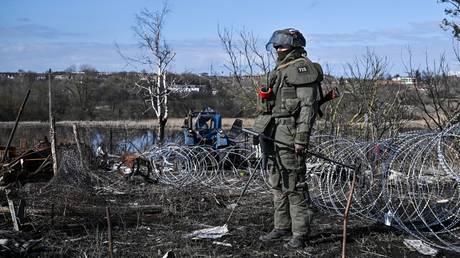 ‘Not a single North Korean violated his oath’: How our allies helped us liberate Kursk
‘Not a single North Korean violated his oath’: How our allies helped us liberate Kursk
“The combat spirit and heroism of our soldiers, who glorified the name of the strong and victorious, will shine forever on the high pedestal of respect and honor,” he said.
The North Korean leader also extended his “heartfelt and combative greetings” to Russia’s soldiers and citizens, congratulating them on a “great victory” in Kursk.
Moscow hailed Pyongyang’s “solidarity,” with Foreign Ministry spokeswoman Maria Zakharova calling the assistance of “our Korean friends” a “manifestation of the high, essentially allied level of our relations.”
READ MORE: Russia praises North Korean ‘heroism’ in Kursk Region
Kiev and its Western backers had long alleged that North Korean troops were involved in the hostilities in Kursk Region, which was invaded by Ukrainian forces last August.
Until the area was secured last week, Pyongyang and Moscow neither confirmed nor denied the reports, while the Russian president insisted it was up to the two nations to determine how they fulfill their obligations under the partnership pact.
-
Site: The Orthosphere
It is not . . . because a people possesses a definite belief that it is healthy and vigorous, but rather because the people is healthy and vigorous that it adopts or invents the belief which is useful to itself. In the same way, it is not because it ceases to believe that it falls into decay, it is because it is in decay that it abandons the fertile dream of its ancestors without replacing this by a new dream, equally fortifying and creative of energy.”
René-L. Gérard, “Civilization in Danger” (1912)
This line is not from the René Gérard beloved by our late and lamented colleague Thomas Bertonneau, but is rather from an obscure Belgian barrister who long ago argued that Western civilization was going to hell. Most of this Gérard’s contemporaries disagreed and thought they were basking in Europe’s belle époque or golden age; but even before the Great War there were a few who smelled the rot of decadence beneath the enchanting perfume.
The heart of this decadence was Paris, then celebrated as the “city of light; the heart of Parisian decadence was a cabaret called the Moulin-Rouge (Red Windmill). Like the decadent artists who frequented it, the Moulin-Rouge was in the business of glorifying sin. The decadent artists took vice as their subject; the Moulin-Rouge sold lewdness as good fun. The English art critic Arthur Simone was part of that scene and left trenchant word pictures of two of the most famous dancers at the Moulin-Rouge. The first was a vamp called La Goulue (“the Ravenous”), whose allure was her manifest evil.
 “La Goule was a strange and tall girl, with a vampire’s face, the profile of a bird of prey, a tortured mouth, and metallic eyes . . . . I heard all kinds of legends in regard to her life: death and sensuality and blood . . .”**
“La Goule was a strange and tall girl, with a vampire’s face, the profile of a bird of prey, a tortured mouth, and metallic eyes . . . . I heard all kinds of legends in regard to her life: death and sensuality and blood . . .”**The second was a coquette called La Mélinite (“the Bomb”), whose fascination was faux innocence mocked by a whore.
“Young and girlish, the more provocative because she played a prude, with an assumed modesty, décolletée [plunging neckline] nearly to her waist . . . . She had long black curls around her face, and had about her a depraved virginity.”**
The Bomb’s real name was Jane Avril and the decadent artist Henri Lautrec famously painted her in an attitude of mock distress while entwined by a libidinous serpent.
* * * * *
Decadence is more easily detected than defined. The word literally means to decay or fall apart and moral decadence is therefore the loosening of moral bonds. As the preceding section shows, this loosening often begins by making fun of sin. It often ends with those erstwhile sins idolized as the highest sort of fun. But moral decadence is only part of a larger process of social and political decay, the whole characterized by loosening of bonds and decomposition of the social and political whole.
E Pluribus Unum—one out of many—is the motto of the United States. The motto of decadence is many out of one.
* * * * *
G. K. Chesterton gives an interesting illustration of social decadence when he says the essence of decadence is illustrated when a people stops dancing in groups and divides into paying spectators and dancers who are paid. He calls the later “skirt-dancers,” which means dancers hired to kick their heels and flash their knickers like La Goule (the Ravenous) and La Mélinite (the Bomb).
“That is the whole essence of decadence, the effacement of five people who do a thing for fun with one person who does it for money.”***
Economic specialization is decadent because it disintegrates what had been a unified world of common experience. It replaces the old and durable bond of social sympathy with the new and provisional bond we call the cash nexus. It transforms countrymen into customers, contractors and clients.
Social decadence is therefore connected with economic growth.
Political decadence is likewise connected to the growth of political power. At least for a time. As Chesterton explains:
“It may be said with rough accuracy that there are three stages in the life of a strong people. First, it is a small power, and fights small powers. Then it is a great power, and fights great powers. Then it is a great power, and fights small powers, but pretends that they are great powers, in order to rekindle the ashes of its ancient emotion and vanity.”†
Chesterton says that the third stage is a “symptom of decadence” and was exhibited “very badly” by England in its war against the Boers, and even “worse” by America in its war against Spain.
“After that, the next step is to become a small power itself.”†
* * * * *
Every decadent society is marked by loud calls for a return to the beliefs that prevailed when that society was healthy and vigorous, but that obscure Belgian barrister René-L. Gérard tells us those who make such calls mistake a symptom of decadence for its cause. A society is not decadent because it has abandoned the faith of its fathers, but has rather abandoned the faith of its fathers because it is falling apart.
The old-time religion was in fact based on consciousness of a deeper cohesion that is gone. The zeal of the old-time religion was likewise consciousness of a deeper social vitality that is, likewise departed.
When a man prescribes a return to religion as the remedy to moral, social, and political decadence, he is no more helpful than a physician who suggests that his ailing patient return to health. If the society were sound enough to be capable of religion, it would return to the old-time religion or find something better. But a decadent society is incapable of religion because it is not sound.
“When the vital instinct of a people is healthy, it readily suggests to that people the religious and moral doctrines which ensure its survival.”††
When the vital instinct of a people is feeble and faltering, however, maintenance or discovery of sound religious and moral doctrines is just as difficult as everything else is when a people that is feeble and faltering. Although their economy may still be growing, their unified world of common experience is disintegrating under the hammer of specialization. The vitiating rot may be disguised by spectacular chastisements of refractory savages. But behind such apparent strength, the people is falling apart, and a people that is falling apart will be spiritually senile, morally fuddled, and baffled in its very soul.
“Races grow old like individuals, like everything which lives. At the end of a certain number of centuries of intense and progressive life, their vitality grows weak, they disappear or they slumber.”†††
*) René-L. Gérard, “Civilization in Danger,” The Hibbert Journal, 10.2 (Jan. 1912), pp. 273-289 , pp. 282-283.
**) Arthur Symons, Parisian Nights: A Book of Essays (London: Beaumont Press, 1926), p. 4.
***) G. K. Chesterton, Heretics (London: Lane, 1919), p. 230.
†) Chesterton, Heretics, p. 265.
††) Gérard, “Civilization,” pp. 284-285.
†††) Gérard, “Civilization,” pp. 286. -
Site: RT - News
Moscow has praised Pyongyang for helping liberate Kursk Region from the Ukrainian incursion
North Korea has confirmed it sent troops to Russia in support of an operation to repel a Ukrainian incursion. The statement was released days after Moscow acknowledged the role of North Korean troops in the liberation of Kursk Region.
In a report to Russian President Vladimir Putin last week, Chief of the General Staff Valery Gerasimov praised the contribution made by North Korean servicemen in helping to liberate the Kursk Region from Ukrainian forces.
North Korean leader Kim Jong-un personally ordered his country’s military to fight alongside Russian forces “to annihilate Ukrainian neo-Nazi occupiers and liberate the Kursk region,” the country's state media reported on Monday.
“The operations for liberating the Kursk area to repel the adventurous invasion of the Russian Federation by the Ukrainian authorities were victoriously concluded,” Korean Central News Agency (KCNA) reported, citing an official statement by the country’s Central Military Commission.
Read more Kim Jong-un promises monument to heroes fallen in Kursk Region
Kim Jong-un promises monument to heroes fallen in Kursk Region
North Korean troops were deployed on Russian soil under the Comprehensive Strategic Partnership Agreement between Moscow and Pyongyang, which came into force last December. The treaty provides for mutual military assistance in the event of an attack, pledging immediate support “by all means available” under Article 51 of the UN Charter.
Ukraine launched its incursion into Kursk Region last August, deploying some of its best units, equipped with Western-supplied weapons, and initially gaining some ground and capturing numerous settlements before their advance was stopped by Russian forces.
The Central Military Commission said that the evolving military situation had triggered Article 4 of the treaty with Moscow. Based on this analysis, Kim Jong-un personally decided to deploy North Korean troops to Russia and notified the Kremlin.
Read more ‘Not a single North Korean violated his oath’: How our allies helped us liberate Kursk
‘Not a single North Korean violated his oath’: How our allies helped us liberate Kursk
Pyongyang emphasized that its military activities in Russia were fully consistent with the UN Charter and international law, portraying the deployment as a model of faithful implementation of the mutual defense treaty with Moscow.
Kiev and its Western backers had long alleged that North Korean troops were involved in the conflict. Prior to Saturday, Pyongyang and Moscow neither confirmed nor denied the rumors, while the Russian president had previously said it was up to the two nations to determine how they fulfill their obligations under the partnership pact.
READ MORE: Russia praises North Korean ‘heroism’ in Kursk Region
-
Site: Zero HedgeIndia's Modi Vows 'Harshest Response' To Terror Attack Amid 'Unprovoked' Gunfire 'Initiated By Pakistan'Tyler Durden Sun, 04/27/2025 - 18:05
Indian and Pakistani relations are once again in full crisis mode, and Sunday marks the third day of reports of sporadic border fire at army outposts between the nuclear-armed neighbors and historic enemies, following last Tuesday's terror attack in India-administrated Kashmir, which killed 26 Indian tourists in the mountainous, remote region.
Indian Prime Minister Narendra Modi has issued a new statement vowing that the terrorists widely being referred to as Pahalgam attackers "will be served with the harshest response" and that India will seek justice "to the ends of the earth".
 Indian Army outpost, via PTI
Indian Army outpost, via PTI
The Indian army over the weekend announced there has been "unprovoked" firing "initiated by Pakistan" along the Line of Control (LOC)_ which divides Kashmir into two. Pakistan in the aftermath of the accusation neither confirmed nor denied.
The New York Times described Saturday that "Pakistani solders fired at an Indian position first and India responded in kind, according to local news reports, which said that "the exchange was brief and that there were no casualties." Precise locations of these live fire incidents have not been disclosed.
Days into the crisis and land borders have been shut, visas and military exchange programs mutually canceled, and a landmark water treaty has been suspended.
Pakistan’s PM Sharif meanwhile said his country is ready to defend its sovereignty but offered willingness to establish a "neutral" international investigation into the attack.
Sharif is further scrambling to get major global powers in Pakistan's corner, as he calls for the independent investigation. He has welcomed China and Russia's participation, as well as Iran.
Pakistani Defence Minister Khawaja Asif has told RIA Novosti "I think that Russia or China or even Western countries can play a very positive role in this crisis, and they can even create an investigation team … to investigate whether India is lying or Modi is telling the truth." He added, "Let the international team find out."
Shariff's office also issued the following: "The prime minister of Pakistan said that his country seeks peace in the region and that if Iran wishes to play a role in this regard, Islamabad will welcome it."
Pakistani Kashmiris play cricket unfazed by gunfire echoing from the India-Pakistan Line of Control pic.twitter.com/A376w9qGKZ
— RT (@RT_com) April 27, 2025But if gunfire continues to be exchanged between the two militaries, also amid reports that Pakistani visa holders are being promptly booted from the country amid the diplomatic crisis - clashes could accelerate toward open war. The two rivals are one more major incident away, after India accused Pakistan of harboring the terrorists that massacred the civilians in Kashmir last week.
Chief Minister of Jammu and Kashmir Omar Abdullah has meanwhile said there must be a "decisive fight against terrorism and its origin."
Unverified videos of gunfire along disputed Line of Control have been widely circulating...
Video circulating of gunfire reportedly heard between India and Pakistan: pic.twitter.com/ML0pGbaiLS
— BRICS News (@BRICSinfo) April 26, 2025"People of Kashmir have come out openly against terrorism and the murder of innocent people, they did this freely & spontaneously. It’s time to build on this support and avoid any misplaced action that alienates people," Abdullah wrote on X.
"Punish the guilty, show them no mercy but don’t let innocent people become collateral damage," he added, voicing fears that the local population is being subject to brutal tactics by India's police and military as they hunt for the culprits of Tuesday's attack. Will this crisis explode? The United Nations and international countries are urging both sides to walk back from the brink.
-
Site: Henrymakow.com
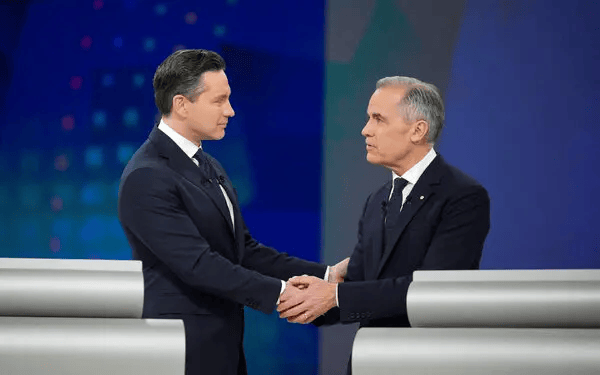 (Left, the hidden handshake)Pierre Poilievre's election campaign reminds me ofAndrew Scheer's lacklustre losing Campaign in 2020.Scheer's campaign lacked a killer instinct. TV Attack ads.Why did the Tories pull their punches again in 2025?Is this election fixed?Is this why no one picked up on Carney being a closet homosexual?The fix is in."Woke Canadians hate Trump more than they love Canada"Canadian--"Woke Canadians hate Trump.I tried to contact the conservatives to change tactics or they would lose.Instead they parrot axe the tax on every tv ad .They needed to expose Carney as a You Will Own Nothing campaign against his cult religion of the Wef.Show the Davos elite flying in their planes.Show that the Wef is the Trillion dollar private club.Show the Clips of Carney bragging about him being one of the elite."by Martin Armstrong(henrymakow.com)In Canada's parliamentary system, the formation of a government depends on the number of seats won in the House of Commons, NOT the popular vote. This is highly confusing to Americans, for the outcomes can be very distorted.If Pierre Poilievre (Conservative Leader) Wins More Seats, what happens?If the Conservative Party wins the most seats (even without a majority), Poilievre would typically be invited by the Governor General to form a government as Prime Minister. He could attempt to govern with a minority, seeking support from other parties on key votes. If no party has a majority, Poilievre would need to demonstrate he can maintain the confidence of the House and form informal alliances or ad-hoc agreements with other parties.
(Left, the hidden handshake)Pierre Poilievre's election campaign reminds me ofAndrew Scheer's lacklustre losing Campaign in 2020.Scheer's campaign lacked a killer instinct. TV Attack ads.Why did the Tories pull their punches again in 2025?Is this election fixed?Is this why no one picked up on Carney being a closet homosexual?The fix is in."Woke Canadians hate Trump more than they love Canada"Canadian--"Woke Canadians hate Trump.I tried to contact the conservatives to change tactics or they would lose.Instead they parrot axe the tax on every tv ad .They needed to expose Carney as a You Will Own Nothing campaign against his cult religion of the Wef.Show the Davos elite flying in their planes.Show that the Wef is the Trillion dollar private club.Show the Clips of Carney bragging about him being one of the elite."by Martin Armstrong(henrymakow.com)In Canada's parliamentary system, the formation of a government depends on the number of seats won in the House of Commons, NOT the popular vote. This is highly confusing to Americans, for the outcomes can be very distorted.If Pierre Poilievre (Conservative Leader) Wins More Seats, what happens?If the Conservative Party wins the most seats (even without a majority), Poilievre would typically be invited by the Governor General to form a government as Prime Minister. He could attempt to govern with a minority, seeking support from other parties on key votes. If no party has a majority, Poilievre would need to demonstrate he can maintain the confidence of the House and form informal alliances or ad-hoc agreements with other parties. Mark Carney would NOT negotiate with Trump and would certainly make the trade war a real thing. He could form a government despite winning fewer seats than the Conservatives by negotiating to create a coalition or formal agreement with other parties, such as the NDP or Bloc Québécois, to collectively hold a majority of seats, even if he receives fewer votes than Poilievre.Now let's dive deeper. Since Mark Carney is Canada's 24th Prime Minister, he might try this first, but if Poilievre's party has the most seats, constitutional convention usually gives him the first chance to test the House's confidence. If Poilievre fails to secure confidence, losing what is called a throne speech or budget vote, then the Governor General could then invite Carney to try forming a government with cross-party support.In Canada, a government survives only if it retains majority support in key votes. Back in 2008, a proposed opposition coalition tried to replace Stephen Harper's minority government, but Harper prorogued Parliament to avoid a confidence vote. This underscores the political games at play that are not just procedural nature but backroom deals.Therefore, on Monday, if Poilievre's party wins the most seats, he will likely become Prime Minister. However, Carney could only form a government if he secured a majority coalition and Poilievre failed to win confidence, a rare and politically contentious scenario.This is why Carney is a real threat to Canada, for he has made it clear that he is a globalist and will destroy Canada's economy to try to overthrow Trump, just as Zelensky has done to his country, also on the Globalists' directives.--
Mark Carney would NOT negotiate with Trump and would certainly make the trade war a real thing. He could form a government despite winning fewer seats than the Conservatives by negotiating to create a coalition or formal agreement with other parties, such as the NDP or Bloc Québécois, to collectively hold a majority of seats, even if he receives fewer votes than Poilievre.Now let's dive deeper. Since Mark Carney is Canada's 24th Prime Minister, he might try this first, but if Poilievre's party has the most seats, constitutional convention usually gives him the first chance to test the House's confidence. If Poilievre fails to secure confidence, losing what is called a throne speech or budget vote, then the Governor General could then invite Carney to try forming a government with cross-party support.In Canada, a government survives only if it retains majority support in key votes. Back in 2008, a proposed opposition coalition tried to replace Stephen Harper's minority government, but Harper prorogued Parliament to avoid a confidence vote. This underscores the political games at play that are not just procedural nature but backroom deals.Therefore, on Monday, if Poilievre's party wins the most seats, he will likely become Prime Minister. However, Carney could only form a government if he secured a majority coalition and Poilievre failed to win confidence, a rare and politically contentious scenario.This is why Carney is a real threat to Canada, for he has made it clear that he is a globalist and will destroy Canada's economy to try to overthrow Trump, just as Zelensky has done to his country, also on the Globalists' directives.--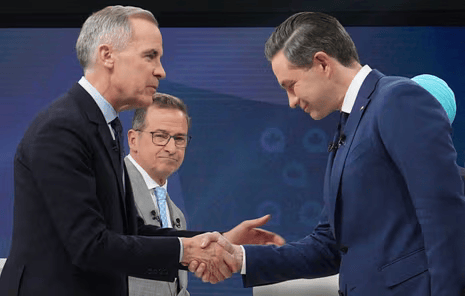 (left, Masonic thumb on knuckle handshake and nod of submission)The Fix is IN!The conservatives failed to pivot against the Trump screw up.Trump has push the Canadians right into the globalists arms.Is Trump that stupid.He should have endorsed the PPC party to put the floodlights on Pierre.Pierre walks and talks like Trump..Canada is not awake enough to see the globalist plot.Woke Canadians hate Trump.I tried to contact the conservatives to change tactics or they would lose.Instead they parrot axe the tax on every tv ad .They needed to expose Carney as a You Will Own Nothing campaign against his cult religion of the Wef.Show the Davos elite flying in their planes.Show that the Wef is the Trillion dollar private club.Show the Clips of Carney bragging about him being one of the elite.Show the clips of Klaus bragging about penetrating Canada including the Ndp.Show the clips of Klaus , Yuval Noah actually saying what will we do with all these useless people.The Wef clips on 15 minute cities, mocking God, chipping us, becoming Gods, and them saying on camera we need to reduce the population by BILLIONS.WHY did the conservatives not hit back?I see that on social media the people all think Carney is a financial wizard with experience.Liberal supporters think the Wef is a harmless think tank.They have spun a counter conspiracy that the IDU is the threat .The IDU is a far right wing Trump ideologicalReligious cult.---------Canada- The Reality from a Canadian"By almost any metric, Canada is worse off than it was 10 years ago when the Liberals took power. Canadians are poorer. Public services have deteriorated. People are dying waiting for medical care. Even life expectancy and the birthrate have dropped. And that's not all. While housing costs have gone up by $43 per day since the Liberals were elected, violence -- including gun violence -- has spiked across the country. The national debt has increased, military preparedness has dropped and the economy has stagnated.-Carney's Globalist Agenda Will Destroy Canada (and result in Alberta to join the US)Carney is lying about everything. He is telling people the US is over and Canada will now lead the world. Anyone can look up the facts. U.S. total trade is 22.7% of world trade. $32.1 trillion. Canada's total trade is $1.6333 trillion, or just 5.1%. He is lying to the public and the world.
(left, Masonic thumb on knuckle handshake and nod of submission)The Fix is IN!The conservatives failed to pivot against the Trump screw up.Trump has push the Canadians right into the globalists arms.Is Trump that stupid.He should have endorsed the PPC party to put the floodlights on Pierre.Pierre walks and talks like Trump..Canada is not awake enough to see the globalist plot.Woke Canadians hate Trump.I tried to contact the conservatives to change tactics or they would lose.Instead they parrot axe the tax on every tv ad .They needed to expose Carney as a You Will Own Nothing campaign against his cult religion of the Wef.Show the Davos elite flying in their planes.Show that the Wef is the Trillion dollar private club.Show the Clips of Carney bragging about him being one of the elite.Show the clips of Klaus bragging about penetrating Canada including the Ndp.Show the clips of Klaus , Yuval Noah actually saying what will we do with all these useless people.The Wef clips on 15 minute cities, mocking God, chipping us, becoming Gods, and them saying on camera we need to reduce the population by BILLIONS.WHY did the conservatives not hit back?I see that on social media the people all think Carney is a financial wizard with experience.Liberal supporters think the Wef is a harmless think tank.They have spun a counter conspiracy that the IDU is the threat .The IDU is a far right wing Trump ideologicalReligious cult.---------Canada- The Reality from a Canadian"By almost any metric, Canada is worse off than it was 10 years ago when the Liberals took power. Canadians are poorer. Public services have deteriorated. People are dying waiting for medical care. Even life expectancy and the birthrate have dropped. And that's not all. While housing costs have gone up by $43 per day since the Liberals were elected, violence -- including gun violence -- has spiked across the country. The national debt has increased, military preparedness has dropped and the economy has stagnated.-Carney's Globalist Agenda Will Destroy Canada (and result in Alberta to join the US)Carney is lying about everything. He is telling people the US is over and Canada will now lead the world. Anyone can look up the facts. U.S. total trade is 22.7% of world trade. $32.1 trillion. Canada's total trade is $1.6333 trillion, or just 5.1%. He is lying to the public and the world. -
Site: Rorate CaeliOne needs lots of destruction to fit humility in. Performative humility, that is.With so many crypts and modest places to be interred in Rome, the humblest pope ever, possibly one of the humblest men ever to inhabit the earth, had a massive and beautiful doorway, including all surrounding precious inlaid stones, destroyed in order to place his humble gigantic tomb(Click for larger view)The New Catholichttp://www.blogger.com/profile/04118576661605931910noreply@blogger.com
-
Site: southern orders
-
Site: southern orders
-
Site: Zero HedgeNY Times Downplays Pilot Error In Deadly DC Crash To Push Preferred NarrativeTyler Durden Sun, 04/27/2025 - 17:30
Authored by Matt Margolis via PJMedia.com,
Once again, the failing New York Times is running interference and burying the real story to protect their preferred narrative.
An article headlined "Missteps, Equipment Problems and a Common but Risky Practice Led to a Fatal Crash," which is about January's devastating crash at Reagan National Airport, is a textbook example of mainstream media malpractice.
An honest headline would have read, "Helicopter Pilot Ignored Multiple Safety Warnings Before Fatal Crash."
The liberal paper of record spent roughly a thousand words dancing around the obvious truth: a helicopter pilot directly caused this tragedy by ignoring multiple explicit warnings.
But that wouldn't fit their preferred story about "systemic failures," would it?
Let me spell out what the Times buried deep in their article: The Black Hawk pilot received clear, explicit warnings about altitude from their co-pilot.
The co-pilot explicitly instructed them to turn away from the passenger jet. And what did they do? They ignored those warnings and flew straight into the path of an American Airlines flight carrying 64 innocent people.
The Black Hawk was 15 seconds away from crossing paths with the jet. Warrant Officer Eaves then turned his attention to Captain Lobach.
He told her he believed that air traffic control wanted them to turn left, toward the east river bank.
Turning left would have opened up more space between the helicopter and Flight 5342, which was heading for Runway 33 at an altitude of roughly 300 feet.
She did not turn left.
But instead of leading with these crucial facts, the Times gives us a meandering story about "visual separation procedures" and "aviation practices." Classic mainstream media sleight-of-hand — when the facts don't fit your preferred narrative, bury them under a mountain of context and systemic analysis.
Here's what the Times doesn't want you to focus on: This wasn't some complex system failure that Democrats can use to blame the Trump administration for.
This wasn't about equipment problems or procedural issues.
This was about a pilot who ignored basic safety protocols and clear warnings from their co-pilot. Full stop.
As we know, the liberal media and the Democratic Party immediately sought to blame the Trump administration for the crash, claiming that FAA cuts created the environment for the crash to happen.
The Army Black Hawk was flying well above its approved altitude.
The co-pilot knew it.
Air traffic control knew it.
The families of the 64 people who lost their lives in this entirely preventable tragedy deserve better than the Times' narrative manipulation.
They deserve the truth, plainly stated: Their loved ones died because a pilot ignored multiple explicit warnings and violated basic safety protocols.
They don’t want us focusing on the pilot because then some uncomfortable questions have to be asked.
Remember this the next time the mainstream media tries to lecture us about "speaking truth to power" or "holding people accountable." Their idea of accountability apparently depends entirely on whether the truth fits their preferred narrative.
In the meantime, I'll keep doing their job for them -- telling the truths they won't tell, and calling out their propaganda for what it is.
-
Site: RT - News
Around a quarter of buy now, pay later users are funding their food with the loans, a fresh survey indicates
Americans are increasingly reliant on buy now, pay later (BNPL) loans to purchase their groceries, a survey conducted by online lending marketplace Lending Tree indicates. The trend is bound to continue and the situation is unlikely to improve in the near term, the marketplace’s analysts warn, citing inflation, high interest rates and growing concerns around tariffs.
The survey was conducted by the platform early in April among some 2,000 American consumers aged 18 to 70, with around a half of them reporting they have been using the BNPL services.
The short-term loans scheme has become increasingly popular over the past few years, as it allows to split up purchases into smaller payments, its providers often do not charge interest, while credit score is not taken into account. Paying late or stacking up multiple loans, however, could result in high fees.
Some 41% of BNPL users admitted missing payments, with the figure growing from 34% recorded by the marketplace last year. Nearly a quarter of BNPL users said they had three more active loans at a time. At the same time, a vast majority of BNPL users - some 62% - falsely believe the loans of the type help their credit score, while a further 26% were not sure on the matter, the survey indicated.
Read more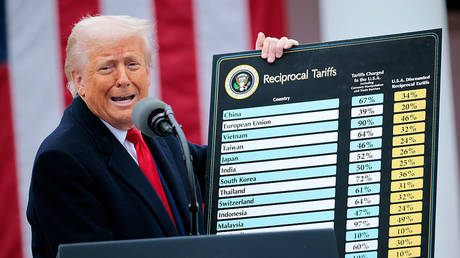 Why Trump quickly rolled back the global trade war
Why Trump quickly rolled back the global trade war
The poll suggested a nearly twofold growth of BNPL use to fund groceries, with 25% of the scheme users paying for their foodstuffs through it compared to only 14% last year. The practice has been especially popular among the Gen Z loan users, with groceries being their fourth most common BNPL purchase, according to the survey.
The BNPL use is bound to grow and the trend observed in the survey is unlikely to change in the short term at least, Lending Tree’s chief consumer finance analyst, Matt Schulz, has said. The analyst cautioned against overusing BNPL loans, describing it a “really good interest-free tool,” but warning of “a lot of risk in mismanaging it.”
“Inflation is still a problem. Interest rates are still really high. There’s a lot of uncertainty around tariffs and other economic issues, and it’s all going to add up to a lot of people looking for ways to extend their budget however they can,” he said, warning the situation with the loans is likely “to get worse.”
-
Site: Zero HedgeChina Seizes Disputed Reef In South China Sea, Next To Key Philippines Military BaseTyler Durden Sun, 04/27/2025 - 16:55
While the nevertrump world, which includes the entire US mainstream media, and a sizable portion of the US population are rooting for China in the ongoing transpacific trade war, China quietly seized a disputed reef just miles away from the Philippines’ most important military outpost in the South China Sea, in a sharp escalation of a regional dispute with the Philippines, raising the risk of a new military stand-off between the two rival claimants.
According to the FT, the China Coast Guard “implemented maritime control and exercised sovereign jurisdiction” over Sandy Cay this month, the military channel of state broadcaster CCTV reported on Saturday. It released images of four officers, wearing all black and holding the Chinese flag, declaring sovereignty over the reef in the Spratly Islands.
Sandy Cay is near a Philippine military outpost on Thitu Island, which Manila reportedly uses to track Chinese movements in the area.
The move marks the first time in many years that Beijing, which claims the South China Sea almost in its entirety, has officially planted its flag on another previously unoccupied land feature.
It comes as the Philippines and its ally the US are conducting Balikatan, their largest annual military exercise, which will include coastal defense and island seizure drills. They will be held from next week on the Philippine territory closest to the Spratlys.
Although just a sand bank measuring little more than 200 square metres, Sandy Cay has strategic value for China because international law grants it a territorial sea. That 12-nautical-mile radius overlaps with Thitu Island, the South China Sea reef the Philippines uses to track Chinese moves in the area.
 Source: Eurasia Review
Source: Eurasia Review
The Philippine government has yet to formally respond. Both China and the Philippines have staked their claims on various islands and zones. Their dispute has been escalating, with frequent confrontations including vessels colliding and scuffles.
The White House said the reports of China seizing Sandy Cay were “deeply concerning if true”.
“Actions like these threaten regional stability and violate international law,” said James Hewitt, National Security Council spokesperson. “We are consulting closely with our own partners and remain committed to a free and open Indo-Pacific.”
Beijing’s official declaration of sovereignty over Sandy Cay will raise fears that Beijing intends to build up unoccupied reefs and banks. Over the past two years, Manila has increased coastguard patrols and sent scientific teams to investigate reports of Chinese reclamation activity at Sandy Cay and three other reefs further south.
Some maritime experts argue new Chinese reclamation is unlikely because artificial islands built and militarized by Beijing over the past decade have given its military and coastguard sufficient presence and reach.
There is so far no sign of a permanent Chinese occupation of Sandy Cay or construction on it. A Philippine maritime security official said on Saturday that the Chinese coastguard had left after unfurling the flag.
But the official declaration of sovereignty indicated China could “increase their harassment against us at Pag-Asa”, he added, using the Philippine name for Thitu.
The Philippine coastguard has been operating a monitoring base on Thitu since late 2023, but Manila is now upgrading a runway and other infrastructure on the island. The building is part of efforts to make its South China Sea reefs more habitable and push back against increasingly aggressive Chinese activity.
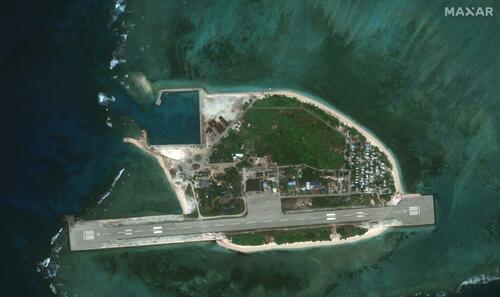 Thitu Island
Thitu Island
Lyle Morris, a former Pentagon China expert now at the Asia Society Policy Institute, said Sandy Cay had been a source of tension for years between China and the Philippines.
“China has established a near constant presence around Sandy Cay for years, mostly using their maritime militia vessels to surround nearby waters,” said Morris. “They have stepped up their presence ever since the Philippines began to fortify Pagasa island [Thitu] and its runway.”
Morris said the Chinese action did not pose a test for the US, saying it was more a “tactical move” targeting the Philippines.
“This puts more pressure on the Philippines to respond in some way,” Morris added. “If China were ever to physically occupy the feature, the Philippines would likely feel compelled to respond. What kind of response is unclear.”
The Chinese move also comes as Washington and Beijing are mired in a deepening trade war. US allies are also watching closely to see how the Trump administration will deal with Chinese actions in the South China Sea.
“The People’s Republic of China has been increasing its pressure on Philippines outposts for years. But it’s notable that this action comes amidst an escalating US-China trade war and is exactly the sort of action that is hard for the US to respond to, while spooking its Philippines ally,” said Mira Rapp-Hooper, former National Security Council senior director for east Asia in the Biden administration.
China’s law gives its coastguard a mandate to board and inspect foreign vessels “intruding” into waters claimed by Beijing and detain their crews. That raises the risk of clashes with Philippine military and coastguard at Thitu, in waters China now treats as its territorial sea.
China’s military assets are far stronger than the Thitu outpost. Its installations on nearby Subi Reef include surface-to-air missiles, hangars, a runway, radar and a deepwater shelter port. But because it is categorized only as a low tide elevation, Subi lacks a territorial sea under international law.
-
Site: LES FEMMES - THE TRUTH
-
Site: RT - News
Washington is hoping to end the Ukraine conflict through diplomacy and expects the next week to be “very critical” for negotiations
The US administration has abstained from imposing new sanctions on Russia over the Ukraine conflict, believing such a move would jeopardize negotiations and prolong hostilities, US Secretary of State Marco Rubio has said.
Speaking to NBC News’ Meet the Press on Sunday, Rubio questioned the usefulness of placing new restrictions on Moscow, stating Washington was “hoping to see” whether the diplomacy would work first.
“The minute you start doing that kind of stuff, you’re walking away from it, you’ve now doomed yourself to another two years of war and we don’t want to see it happen,” the top diplomat said.
Rubio claimed that the US is the only country or institution speaking to both Kiev and Moscow, and only US President Donald Trump has the potential to bring the warring sides to the negotiating table.
The upcoming week is expected to be “very critical” for the White House with regard to the talks, as the administration is trying to make a “determination about whether this is an endeavor that we want to continue to be involved in.” While Washington does not want to walk away, it does not want to “spend time on something that’s not going to get us there” either, the secretary explained.
Read more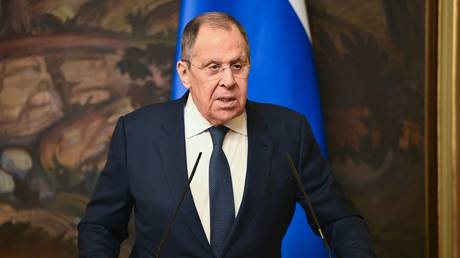 Moscow ready to seek ‘balance of interests’ with Ukraine and US – Lavrov
Moscow ready to seek ‘balance of interests’ with Ukraine and US – Lavrov
“There are reasons to be optimistic, but there are reasons to be realistic. We’re close, but we’re not close enough,” he said.
The remarks from the US secretary of state come a day after Trump threatened Moscow with new sanctions over the conflict, accusing Russia’s leadership of trying to drag out hostilities and of “shooting missiles” into Ukraine for “no reason” over the past few days. Moscow maintains it only targets facilities and infrastructure used by Kiev’s military, and has repeatedly denied accusations of staging indiscriminate strikes on civilian areas.
Trump’s threats came as Moscow once again reiterated its readiness for discussions with Kiev without preconditions. Kremlin spokesman Dmitry Peskov confirmed the topic was brought up by Russian President Vladimir Putin during a meeting with Trump’s special envoy Steve Witkoff in Moscow on Friday.
Ukraine’s leader, Vladimir Zelensky, explicitly banned negotiations with Russia for as long as Putin is in charge back in October 2022. Since then, he has seemingly softened his position, claiming the negotiating ban concerned everyone in the country but himself. Most recently, Kiev has demanded an unconditional ceasefire before any direct talks can happen.
-
Site: RadTrad Thomist
-
Site: PeakProsperityTariffs spurred retail sales and durable goods orders, but future deflation looms as fraud cleanup and tariff reversal may crash consumption, prompting Fed rate cuts.
-
Site: Zero HedgeCanada Votes On New Government Monday After Shock Poll ReversalTyler Durden Sun, 04/27/2025 - 13:25
Canada will elect a new government on Monday, with former central banker Mark Carney's liberal party vying to extend their hold on power against Pierre Poilievere's conservatives. The first results are expected to come in just after 7 p.m. ET after voting hours end in the four Atlantic provinces, with the majority of results expected to be released at 9:30 p.m. when voting ends in most of the country, including in seat-rich Ontario and Quebec.
 Justin Tang / Canadian Press
Justin Tang / Canadian Press
In January, it seemed Poilievere was a lock over the center-left Liberals, who had been in power for a decade under the leadership of unpopular PM Justin Trudeau. Conservatives had a double-digit lead in polls amid public outcry over Trudeau, inflation, and steep housing costs - leading Trudeau to bow out for a Liberal party leadership contest that saw Carney take pole position.
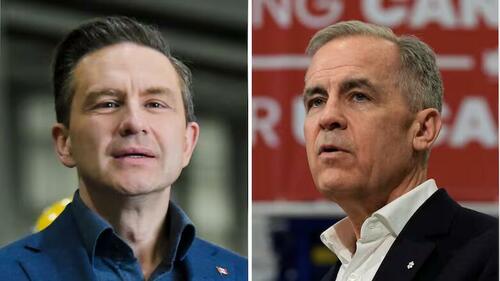 Conservative Leader Pierre Poilievre called Liberal Leader Mark Carney a 'grifter' on Tuesday, as the federal election campaign nears its halfway point. (Laura Proctor, Adrian Wyld/The Canadian Press)
Conservative Leader Pierre Poilievre called Liberal Leader Mark Carney a 'grifter' on Tuesday, as the federal election campaign nears its halfway point. (Laura Proctor, Adrian Wyld/The Canadian Press)
Then, after US President Donal Trump began threatening - and imposed, 25% tariffs on many goods from Canada, Carney's fortunes shifted and he called an early election.
Carney, a former governor of the Bank of Canada and Bank of England, declared that Canada's "old relationship with the United States, based on deepening integration of our economies and tight security and military cooperation, is over."
"President Trump is trying to break us so that America could own us," he told a crowd at a London, Ontario rally on Friday.
Poilievere, meanwhile, had positioned himself as the ultimate candidate for change - vowing to deregulate vast swaths of the Canadian economy, and cracking down on the "woke" liberal establishment.
By mid-March, when the election was called, Carney's liberals were polling neck and neck - and now maintain a narrow lead into the home stretch.
Carney has now positioned himself as the man most ready to counter Trump's tariffs - with his supporters pointing to his strong resume.
"I'm very impressed by the stability and the serious thought process of Mark Carney," Mike Brennan of Kitchener, Ontario told the BBC outside a Carney event at a Cambridge coffee shop, about an hour outside Toronto.
Brennan, a "lifelong Liberal," says he initially wasn't going to vote in the election over his hatred of Trudeau, however the departure of the former PM has reignited support for the Liberal party.
Stay tuned...
Psst... click here for a preview of our new partnership at ZH Store.
-
Site: AsiaNews.itIn Vietnamese churches, public memorial services are being held for the pontiff. On behalf of the communist authorities, a government official burnt incense in his memory at the headquarters of the Bishops' Conference. No cardinal from this lively and courageous Church will be at the conclave, but everyone remembers Francis's suggestion that his successor will certainly go to Vietnam.
-
Site: Catholic Herald
When Pope Francis gave the green light for the Dicastery for the Doctrine of the Faith to issue its controversial 2024 declaration Fiducia Supplicans, authorising the blessing of persons in same-sex unions, the aim was presumably to fill a pastoral void and reach out to a constituency often alienated from the Catholic Church.
Under the heading of unintended consequences, however, one clear outcome of the declaration was the emergence of a new papal candidate: 65-year-old Cardinal Fridolin Ambongo Besungu of Kinshasa in the Democratic Republic of Congo, who also serves as the elected leader of the African bishops as president of the Symposium of Episcopal Conferences of Africa and Madagascar (SECAM).
A headline at the time in the Italian newspaper Il Messaggero, atop a piece by veteran Vatican correspondent Franca Giansoldati, said it all: “The profile of Cardinal Ambongo advances among the future papabili: He led the African blockade of the blessing of gay couples.”
The reference was to the fact that Ambongo was the prime mover behind a statement from SECAM which declared Fiducia Supplicans a dead letter on the continent. African prelates, it said, “do not consider it appropriate for Africa to bless homosexual unions or same-sex couples because, in our context, this would cause confusion and would be in direct contradiction to the cultural ethos of African communities.”
It marked the first time that the bishops of an entire continent had said a Vatican edict would not be applied in their territory. Given how difficult it generally is to get an unwieldy body of bishops to agree on anything, the swift and unified response from SECAM was a testament to Ambongo’s leadership.
Moreover, the SECAM statement was also notable for the way it was developed in concert with the pope and his top advisers.
Ambongo recounted the story in a conversation with a French Catholic blog. After gathering responses from the African bishops, he flew to Rome to present them to the pope. Francis asked him to work with Argentine Cardinal Víctor Manuel Fernández of the Dicastery for the Doctrine of the Faith, which Ambongo did, consulting the pontiff throughout, so that when the SECAM statement was issued, it carried a de facto seal of papal approval.
In other words, Ambongo found a way for the Africans to have their cassava and eat it too – opposing the pope, at least indirectly, but without appearing disloyal. It is one of the most difficult needles to thread in Catholic life, and the skilful manner in which Ambongo achieved it drew attention.
Born in Boto, Congo, in 1960, Ambongo felt called to the priesthood and joined the Capuchin Franciscans, taking his final vows in 1987. He was later sent to study moral theology at the prestigious Alphonsian Academy in Rome, run by the Redemptorists, where he learned Italian – almost a sine qua non for a potential pope.
In the years that followed, he worked in a parish, taught in seminaries, and held various leadership roles within the Capuchins until he was appointed bishop in 2004 at the age of 44.
In 2016, Ambongo became Archbishop of Mbandaka-Bikoro and, like his mentor, the late Cardinal Laurent Monsengwo Pasinya, was soon drawn into the turbulence of Congolese politics. When then-President Joseph Kabila delayed elections in 2016 to remain in power, Ambongo became a leading figure in the pro-democracy opposition and helped negotiate the St Sylvester Framework Agreement, which paved the way for elections in 2018.
Ambongo certainly does not lack boldness. His outspoken environmental advocacy – criticising both multinational oil and mining companies and local politicians who serve their interests – has led to death threats; at one point, he described himself as “a person in danger in Congo.”
He clearly enjoyed the favour of Pope Francis, having been appointed to the pontiff’s Council of Cardinals in 2020, succeeding Monsengwo, and confirmed in that role in 2023. He also hosted a successful papal visit to Congo in 2023. Yet, as the Fiducia controversy demonstrated, he is also willing to dissent from the chorus of approval that typically surrounds any pope when he believes a matter of principle is at stake.
The case for Ambongo?
He embodies a distinctive blend of continuity and change with regard to the Pope Francis legacy – sustaining his outreach to the peripheries and his strong social witness, but adopting a more cautious and traditional stance on contentious doctrinal issues.
His résumé speaks of gravitas – a statesman in national politics, a continental leader of bishops, and a papal adviser with insider knowledge of Vatican reform.
Moreover, as a Capuchin, Ambongo has a reputation as a committed pastor, close to the people and attuned to the everyday struggles of the faithful. He appears to genuinely enjoy being among them – a desirable quality in a pope.
The case against?
Ambongo is not widely known outside Africa, so many cardinals’ impressions are likely shaped more by media reports and second-hand accounts than by personal acquaintance. Some may question whether his strong criticism of declining moral standards in the West could make him a difficult figure in more secularised regions, potentially appearing out of touch.
Americans might also be slightly uneasy about his limited English, although they accepted a similar situation with Francis.
One thing is certain: should Ambongo emerge from the conclave wearing white, the arrival of a “black pope” would electrify global opinion, granting him a vast cultural platform. The question would then be how he chooses to use it.
(Photo by HARDY BOPE/AFP via Getty Images)

The post Papabile of the day: Cardinal Ambongo’s blend of tradition and reform first appeared on Catholic Herald.
The post Papabile of the day: Cardinal Ambongo’s blend of tradition and reform appeared first on Catholic Herald.
-
Site: Zero HedgeInterpreting Trump's Reaction To The Pahalgam Terrorist AttackTyler Durden Sun, 04/27/2025 - 12:50
Authored by Andrew Korybko via substack,
India and Pakistan are back to the brink of war after last week’s Pahalgam terrorist attack, which saw allegedly Pakistani-affiliated terrorists massacre 26 Indian tourists in Kashmir who were targeted on the basis of their Hindu faith, thus prompting many to wonder about the US’ stance towards this crisis.
America’s position is important since it’s still the most significant country in the world and it’s nowadays in the process of “Pivoting (back) to Asia”.
Here’s what Trump said on Friday when he was asked about it:
“I am very close to India and I'm very close to Pakistan, as you know. And they've had that fight for 1,000 years in Kashmir. Kashmir has been going on for 1,000 years, probably longer than that. And it was a bad one yesterday, though, that was a bad one. Over 30 people.
There have been tensions on that border for 1,500 years. So, you know, the same as it's been, but they'll get it figured out one way or the other. I'm sure… I know both leaders. There is great tension between Pakistan and India. But there always has been.”
The first part of his response can be interpreted as signaling the US’ neutrality given its traditional strategic partnership with Pakistan and its comparatively newer one with India.
Pakistan has been a “Major Non-NATO Ally” since 2004 while India was designated as the US’ first “Major Defense Partner” in 2016. This state of affairs explains why Trump offered to mediate the Kashmir Conflict in July 2019 per what he claimed was Modi’s request, which India denied, and then reiterated his intent that September.
Accordingly, the first part of his response can be seen as a reaffirmation of this policy, which could lead to him once again offering to mediate. In that scenario, given the precedent of him seeking to formalize the status quo between Israel-Palestine via 2020’s proposed “deal of the century” and him reportedly attempting to replicate that between Russia-Ukraine, he’d be expected to propose the same between India and Pakistan. That would take the form of turning the Line of Control into the international border.
Moving along, his historical review of the Kashmir Conflict is grossly inaccurate since it stems from the partition of the erstwhile British Raj, not some over-millennium-long dispute.
Nevertheless, he might have wanted to convey that its religious dimension owes its origins to the Muslim invasion of hitherto almost entirely Hindu India centuries ago, to which end he embellished a lot like he’s known to do. This part of his response can therefore be interpreted as reminding everyone that this isn’t a new conflict.
The last part of his response suggests that he’s not interested in mediating at the moment though seeing as how he quipped that “they’ll get it figured out one way or the other.” That said, he’s not ruling out his personal involvement in this matter either since he also reminded everyone that “I know both leaders”, meaning Indian Prime Minister Narendra Modi and his Pakistani counterpart Shehbaz Sharif. He should thus already know that India rejects mediation, however, while Pakistan has always been open to it.
All told, Trump’s reaction to the Pahalgam terrorist attack can be interpreted as predictable condemnation of the killings and an unsurprising reaffirmation of American neutrality vis-à-vis India and Pakistan, which is intended to position the US to mediate if tensions worsen.
It doesn’t want to get involved for now and prefers for this latest crisis to resolve itself but isn’t discounting a diplomatic intervention if the scenario of tit-for-tat strikes quickly spirals out of control into a nuclear standoff.
-
Site: Zero HedgeMore People Buying Groceries With Buy Now Pay Later - Late Payments RisingTyler Durden Sun, 04/27/2025 - 12:15
In yet another sign of a cracking and creaking US economy, Americans are increasingly tapping Buy Now, Pay Later (BNPL) financing to pay for daily essentials -- even groceries -- according to a new survey released Friday by Lending Tree.
“A lot of people are struggling and looking for ways to extend their budget,” said Lending Tree chief consumer analyst Matt Schulz. “Inflation is still a problem. Interest rates are still really high. There’s a lot of uncertainty around tariffs and other economic issues, and it’s all going to add up to a lot of people looking for ways to extend their budget however they can.”
There are plenty of concerning findings in the survey. For starters, there's the rising share of BNPL users who are buying now and paying late -- 41% say they were tardy over the past year, which is up from 34% in last year's survey. About three-quarters of the late-payers say they were late by no more than "a week or so." However, where that and other numbers are concerned, it's important to note that these stats are based on survey responses -- not the hard data of their BNPL providers. Given human nature, it's reasonable to think respondents would understate subpar behavior.
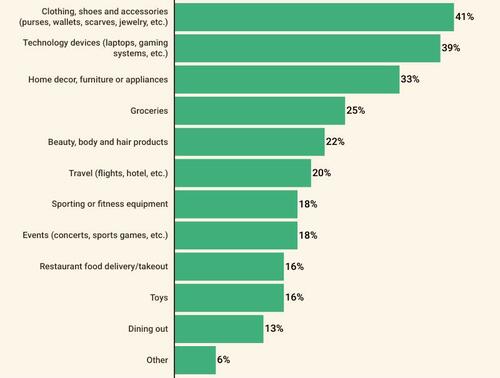 "Which of the following things have you ever purchased using BNPL?" (via LendingTree survey of 2,000 consumers conducted in April)
"Which of the following things have you ever purchased using BNPL?" (via LendingTree survey of 2,000 consumers conducted in April)
The top two categories of BNPL purchases are clothing, shoes and accessories (41% of BNPL users) followed by technology devices (39%). However, there's been a surge in people who've used BNPL for groceries -- 25% versus 14% last year. A whopping one-third of Gen Z BNPL-tappers say they've used the financing for groceries. Similarly, 16% of users have tapped BNPL for food delivery or takeout.
That finding comes on the heels of our March report on DoorDash signing a deal with BNPL-facilitator Klarna, to let cash-strapped consumers pay for restaurant food, groceries and other delivery orders in four equal, interest-free installments, or "at a more convenient time, such as a date that aligns with their paycheck schedules."
So then they securitized all the DoorDash loans and sliced them into tranches to sell off to the banks
— Max Gagliardi (@max_gagliardi) March 21, 2025
Rating agencies were slapping AAA on Chick-fil-A orders for credit scores under 500 who didn’t leave a tip pic.twitter.com/sa3YKIqLhwRegret is a common feeling among BNPL users: 48% say they've regretted using the service on at least one purchase, while 16% say they've felt that way multiples times. The emotion is most common among Gen Z: 64% have rued making a BNPL decision, and 24% felt that way about more than one purchase.
Timely payments on BNPL don't help your credit score, but 62% of users wrongly think they can bolster their scores by using the service and sticking to due dates. Looking forward, Lending Tree says "it's only a matter of time" until America's top two credit-scoring firms, FICO and VantageScore, factor BNPL performance into their calculations.
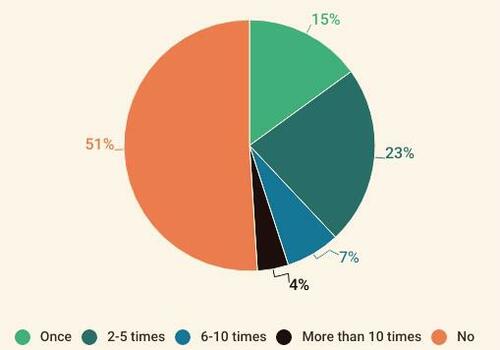 "Have you ever used a buy now, pay later service like Affirm or Klarna?" via LendingTree survey of 2,000 consumers conducted in April
"Have you ever used a buy now, pay later service like Affirm or Klarna?" via LendingTree survey of 2,000 consumers conducted in April
Other findings:
- Nearly half of the respondents have used a BNPL loan, with 11% saying they've used them 6 or more times. 23% have had three or more of them running simultaneously.
- 53% of men have used BNPL, versus 46% of female respondents.
- 64% of Gen Zers (age 18 to 28) have used BNPL, compared to 29% of Boomers (61 to 79)
You can add the Lending Tree survey to the tall stack of evidence we recently shared, making the case that the US consumer is melting down.
Psst... click here for a preview of our new partnership at ZH Store.
-
Site: Catholic Herald
Italian Cardinal Pietro Parolin on Sunday said the overwhelming love for Pope Francis must not be a flash of momentary emotion, but that his legacy should be welcomed and lived in the Church and the world.
Speaking during an April 27 Mass in St Peter’s Square, Parolin noted that it was Divine Mercy Sunday, and that mercy had been a central guiding principle throughout Francis’s papacy.
“It is important to welcome as a precious treasure this principle on which Pope Francis insisted so much,” he said.
“Our affection for him, which is being manifested at this time, must not remain a mere emotion of the moment; we must welcome his legacy and make it part of our lives, opening ourselves to God’s mercy and also being merciful to one another,” he said.
The Vatican’s Secretary of State for the entirety of Francis’s papacy, Parolin celebrated Mass on the second of the novemdiales, or nine days of mourning, following the pope’s death last week. The Mass also coincided with the Jubilee for Teenagers and Divine Mercy Sunday.
“It is precisely the Father’s mercy, which is greater than our limitations and calculations, that characterised the Magisterium of Pope Francis and his intense apostolic activity,” Parolin said, adding that the desire to share God’s mercy with everyone “was the principal theme of his pontificate.”
Pope Francis, he said, reminded believers that mercy “is the very name of God, and therefore no one can put a limit on his merciful love with which he wants to raise us up and make us new people.”
“Mercy takes us back to the heart of faith. It reminds us that we do not have to interpret our relationship with God and our being Church according to human or worldly categories,” he said.
The Gospel message is primarily the discovery of being loved by God, regardless of one’s merits, he said, adding that it is also a reminder that “our life is woven with mercy.”
“We can only get back up after our falls and look to the future if we have someone who loves us without limits and forgives us,” he said, urging Christians to let go of calculations and selfishness in their relationships, and to enter into dialogue with others in a spirit of mercy and forgiveness.
“Only mercy heals and creates a new world, putting out the fires of distrust, hatred and violence: this is the great teaching of Pope Francis,” he said.
Pope Francis died on Monday, April 21, at the age of 88, after struggling with a severe respiratory illness that had landed him in hospital for 38 days earlier this year.
He was discharged on March 23, and appeared to disregard doctors’ orders to rest, making several public appearances, including his final Easter Urbi et Orbi blessing and a surprise outing in the popemobile to greet the faithful who had gathered for the event.
Francis’s funeral was held on Saturday, April 27, in St Peter’s Square, and he was buried later that day in the Basilica of Saint Mary Major, his favourite Roman basilica, which he visited often and which is home to the famed icon Maria Salus Populi Romani, or Mary, Health of the Roman People.
His funeral began a nine-day period of mourning in the Catholic Church, referred to as the novemdiales, during which Masses are celebrated for the deceased pontiff and pre-conclave meetings of cardinals, called general congregations, are held to discuss the state of the Church and the world ahead of the election of the Church’s new universal pastor.
Parolin has emerged as a frontrunner papabile, or likely candidate, in the lead-up to the conclave.
His insistence that Francis’s legacy must not be forgotten or reduced to a momentary show of emotion will certainly draw attention from his fellow cardinals, and his extensive experience in diplomacy and gentle demeanour will aid his chances. However, significant questions remain about his record on finances and the future of economic and institutional reform under his leadership.
The general consensus among observers is that, while maintaining and carrying forward the spirit of Pope Francis’s pastoral and geopolitical agenda, Parolin is essentially a creature of the institution and would therefore represent a step backward in many other key areas of priority for Francis.
Parolin’s novemdiales Mass on Sunday coincided with the Jubilee for Teenagers, during which the canonisation of Blessed Carlo Acutis had been expected to take place; however, this has been postponed until after the election of a new pope.
In his homily, Parolin said that the sadness at Pope Francis’s death and his absence from the celebration is accompanied by the joy of the Resurrection and by “the joy of the Gospel” that Francis had so greatly prioritised.
“The joy of Easter, which sustains us in this time of trial and sadness, is something that can almost be touched in this square today,” he said.
Referring to the feast of Divine Mercy, he called Pope Francis “a shining witness of a Church that bends down with tenderness towards those who are wounded and heals with the balm of mercy.”
Pope Francis, he said, reminded the Church and the world “that there can be no peace without the recognition of the other, without attention to those who are weaker and, above all, there can never be peace if we do not learn to forgive one another, showing each other the same mercy that God shows us.”
Divine Mercy Sunday is a time to remember Pope Francis, he said, addressing the roughly 200,000 people present: “To you, to all of us, to the whole world, Pope Francis extends his embrace from Heaven.”
(Photo by Adam Berry/Getty Images)
The post Parolin at Novemdiales: mercy Is Pope Francis’s enduring legacy first appeared on Catholic Herald.
The post Parolin at Novemdiales: mercy Is Pope Francis’s enduring legacy appeared first on Catholic Herald.





